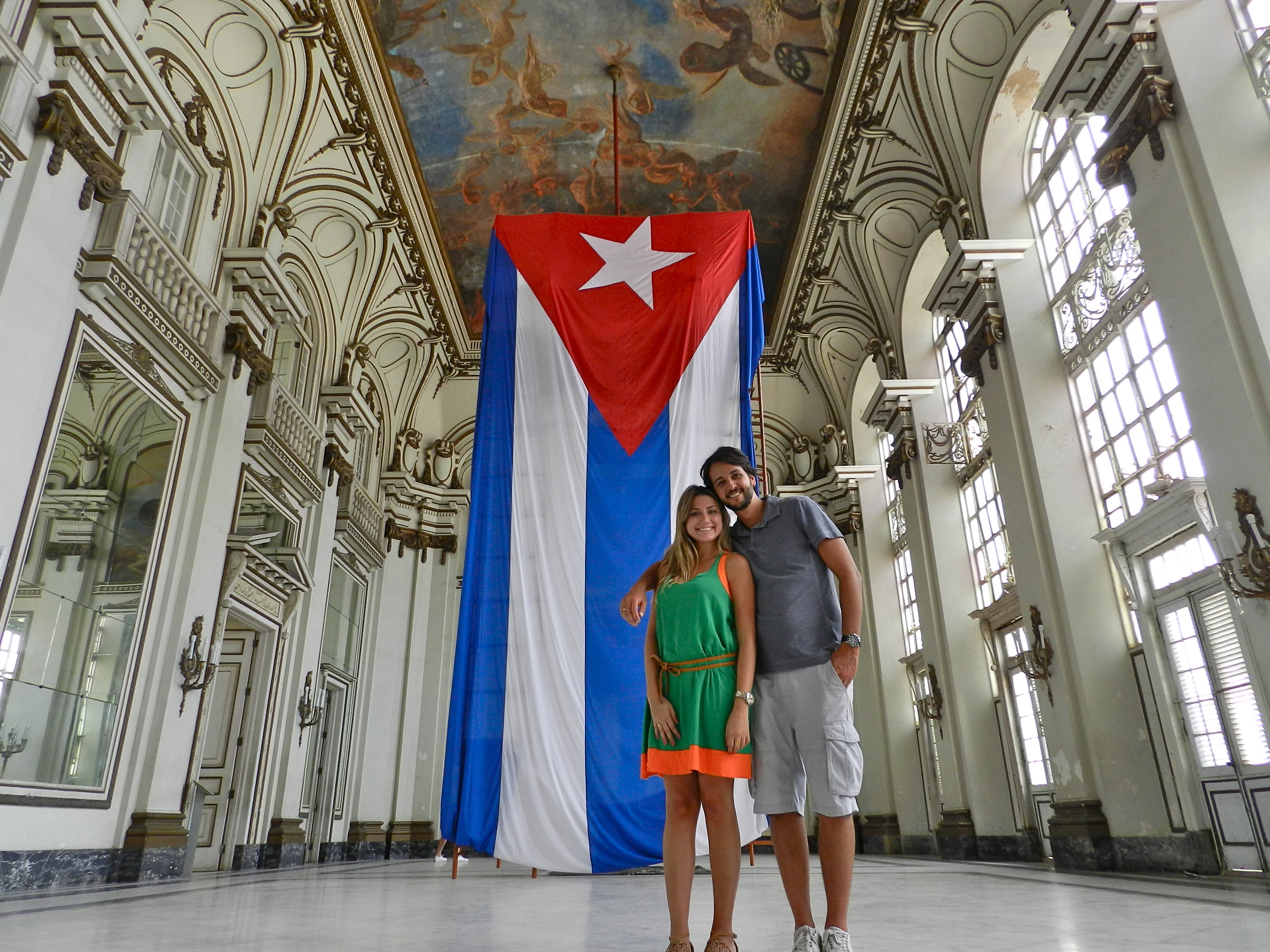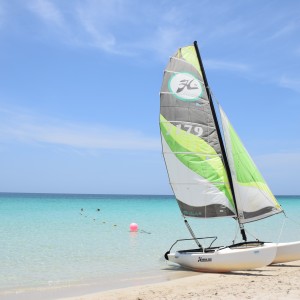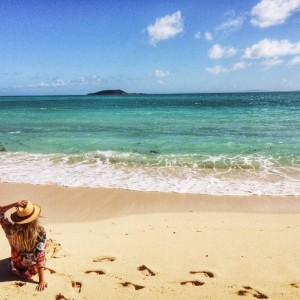Cuba is the ideal destination for those who like to travel in a more cultural way, in a place with a lot of amazing stories, and, at the same time, want to enjoy and relax, at the beach (turquoise blue beaches!).
Today, I write about a 4 DAYS TRIP to Havana, the capital of this happy and curious country in the Caribbean, which is, each day, more opened to the world. 🙂
 Overview
Overview
If you think that Cuba is only a small island, you are wrong. It’s bigger than many European countries and its population is about 11.000.000 people. It’s the biggest Caribbean island and it’s only 145km far from the USA.
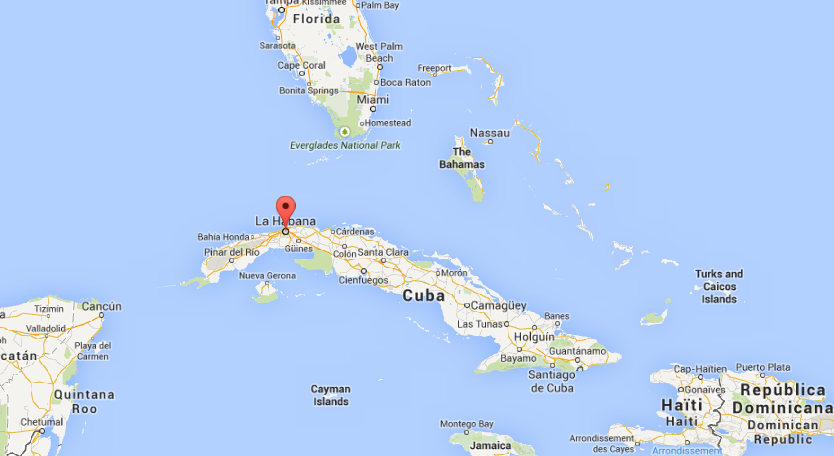
The first thing that you think when arrive in Cuba is “DID I GO BACK IN TIME?”. And see HAVANA is a MUST to understand in fact what is “behind everything”. My tip: if you want to go to Cuba to have this “nostalgic experience”, you should go ASAP!
I’ve been there in 2013 and went back one year later. A lot of things have changed! Even more now, that the relation between US and Cuba is better each day.
The country, governed by Fidel’s brother Raúl Castro since 2008 is more opened each day, but still feeling the “strength” of the socialism. Habana Vieja is still there, a true open air museum. So beautiful!
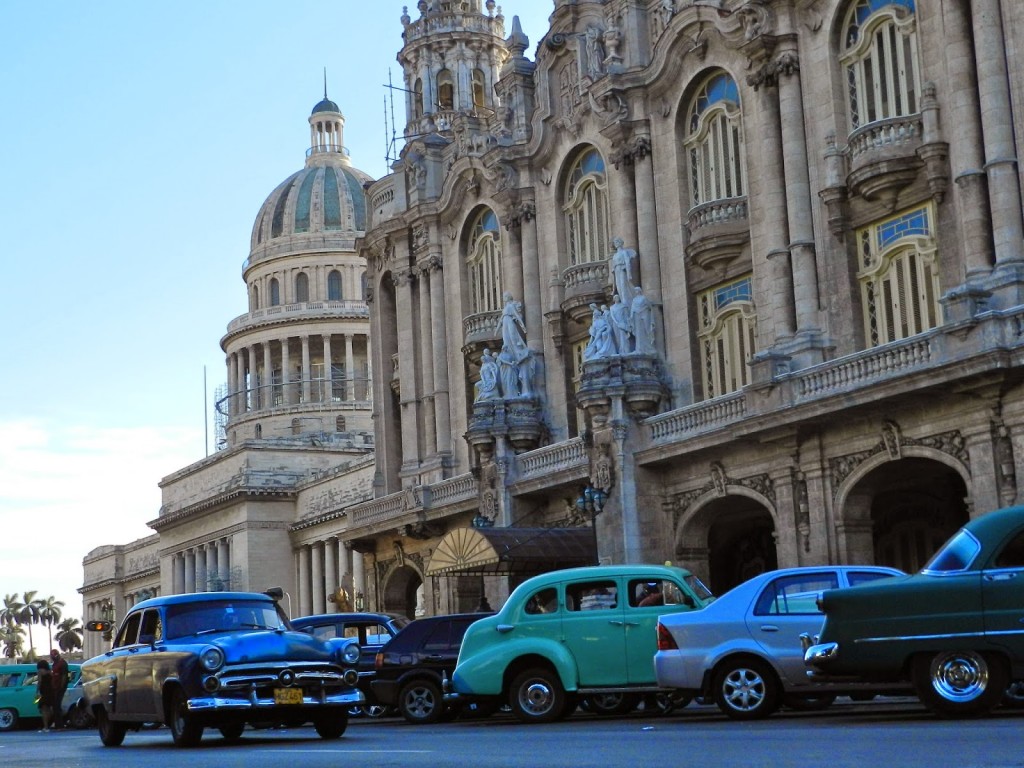
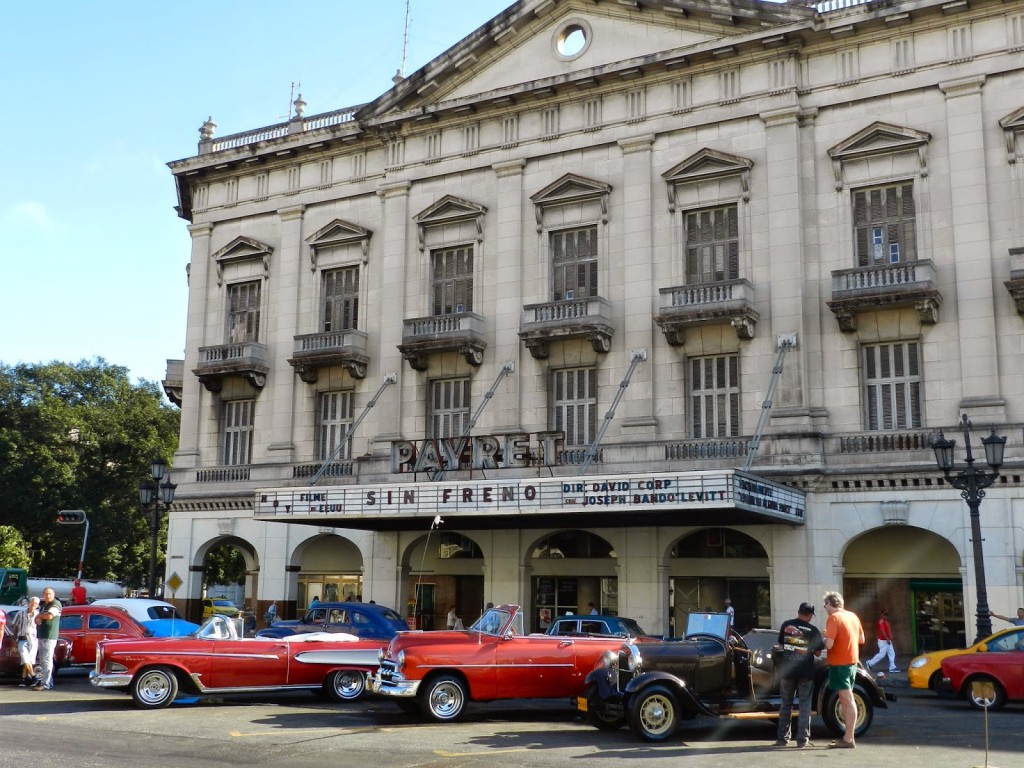
Travel to Havana makes you think all the time… You spend half of your day enjoying the socialism, and the other half, the capitalism. A trip of reflections. The coolest thing about traveling to Cuba is: be open to listen, to learn new things, debate… Without prejudices!
Talking to Cubans is also a very nice activity. Mostly with the the older people, who experienced the Revolution. Usually, these people are advocates of socialism. Ask about the system, the currency… Everything that you can! We have talked with young people too, but they didn’t seem to like the socialism, and the fact that they weren’t free to travel and to live abroad.
>> Beware with some cubans who will approach you. They will try to sell you great cigars for peanuts, or take you to weird places. <<
However, I felt very safe in Havana, even in some ugly and dark streets. The crime rate in Cuba is VERY VERY low.
[A LITTLE BIT OF HISTORY]
In 1952, Fulgencio Batista, the ruler of Cuba, gave a coup with the support of the United States. His government became a violent dictatorship that did not care about people needs. Cuba was becoming a “pleasure island”, famous for its music, prostitutes, cigars… In combat to this government, a revolutionary movement led by Fidel Castro, Ernesto “Che” Guevara and Camilo Cienfuegos grew up, and, in 1959 (after a lot of battles), Batista was deposed. It resulted in the establishment of the socialism. Few years later, Cuba and United States broke off.
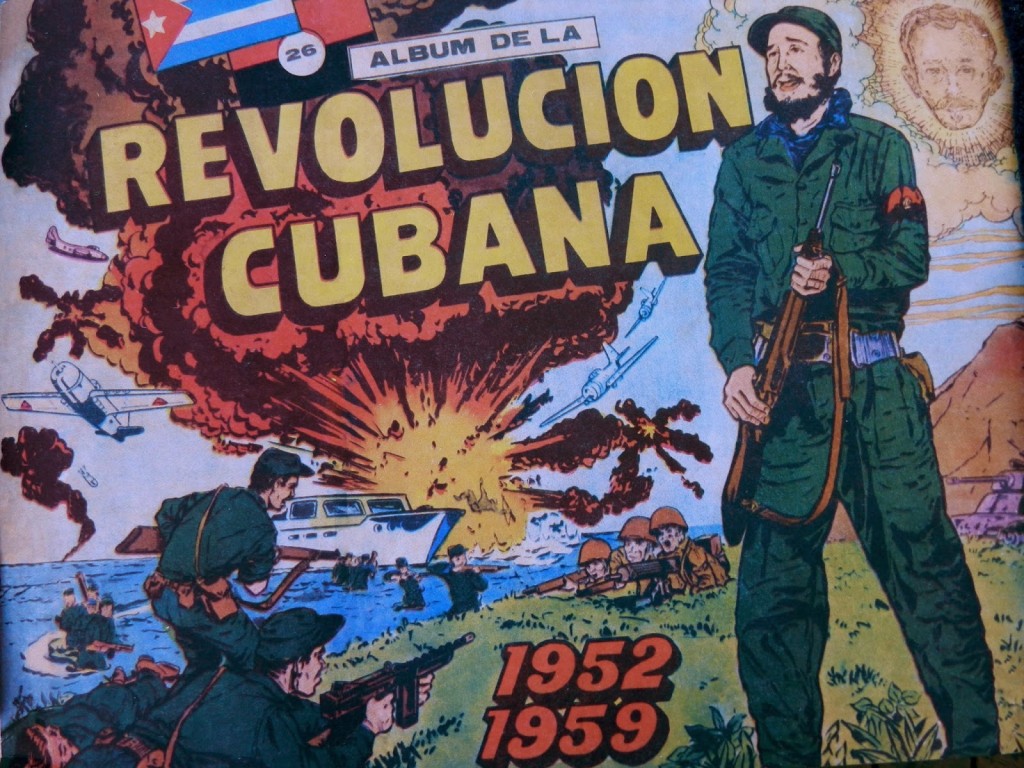
↑ Back to top
 Getting there / Where to stay
Getting there / Where to stay
[FLIGHTS]
Many airlines fly to Cuba. Search here for the most convenient for you.
[CURRENCY]
Cuban currency: CUP for locals / CUC for tourists.
The official Cuban currency is the PESO CUBANO (CUP). The CUP is used by citizens and its value is very low. But there is also the CUC (PESO CONVERTIBLE), equivalent to 1 USD, which is the currency for tourists.
>> Important tip: take EUROS instead of US Dollars to exchange to CUC. For the US Dollar exchange is applied a 10% tax.
Some places already accept credit cards, but it is very limited (if it’s a card of an American bank, even more difficult – remember, I was there in 2013. Don’t know how things are right now). Anyway, better to take enough CASH for your entire stay in the country.
[HOTELS]
I strongly recommend staying at HABANA VIEJA.
It’s where everything happens! Staying there you will experience a history of the past. You will feel inside a old movie. And it’s also close to most of the sights and great restaurants!
Some hotels suggestions:
I highly recommend staying at Hotel Inglaterra. It’s on the Paseo del Prado, the main avenue of Habana Vieja. The hotel is neighbor of the Gran Teatro de Habana and the Capitol. Inglaterra is very old (1875), but very maintained. It seems to be a luxury hotel stuck in time. The price was also great (something around 60 euros).
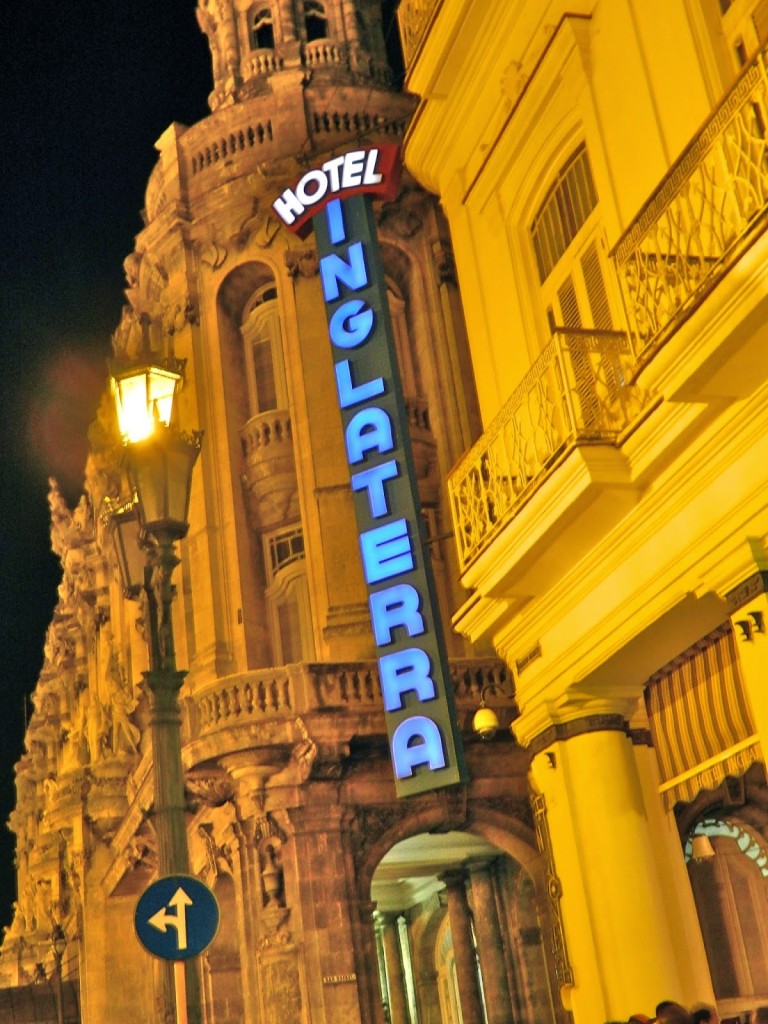
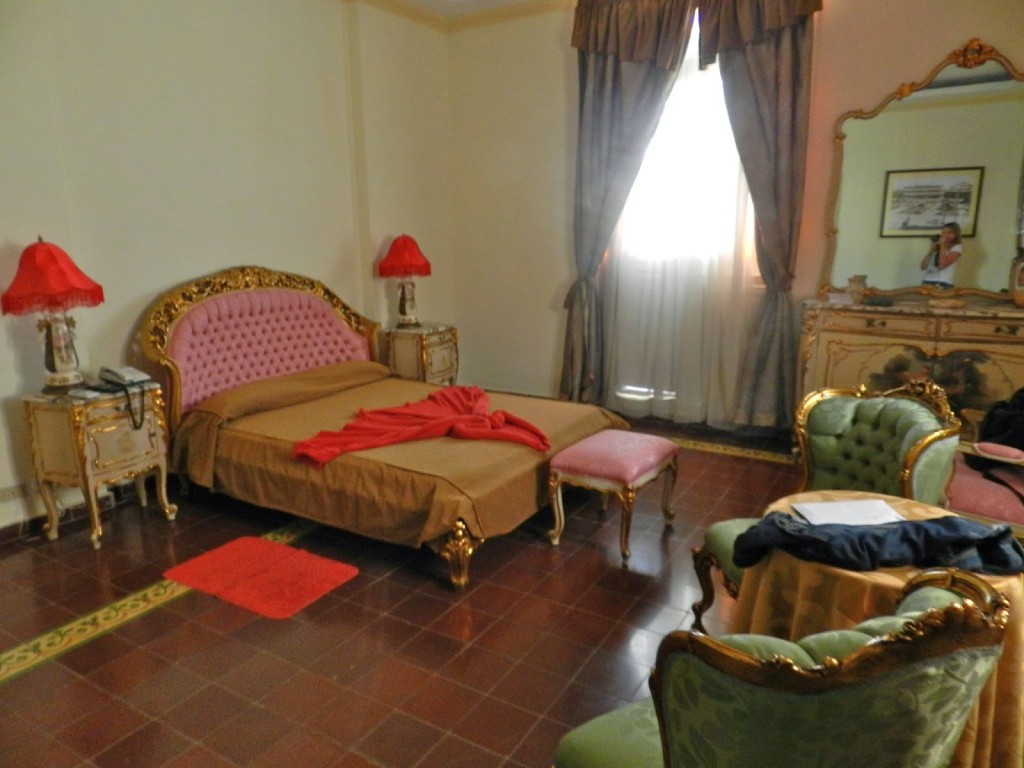
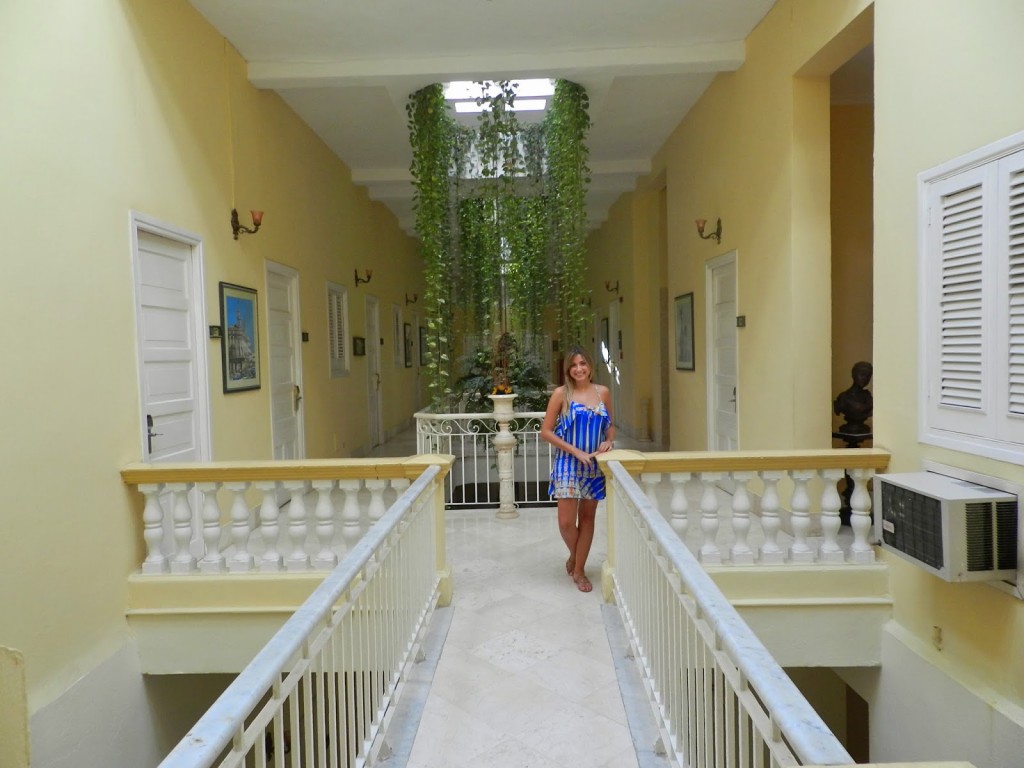
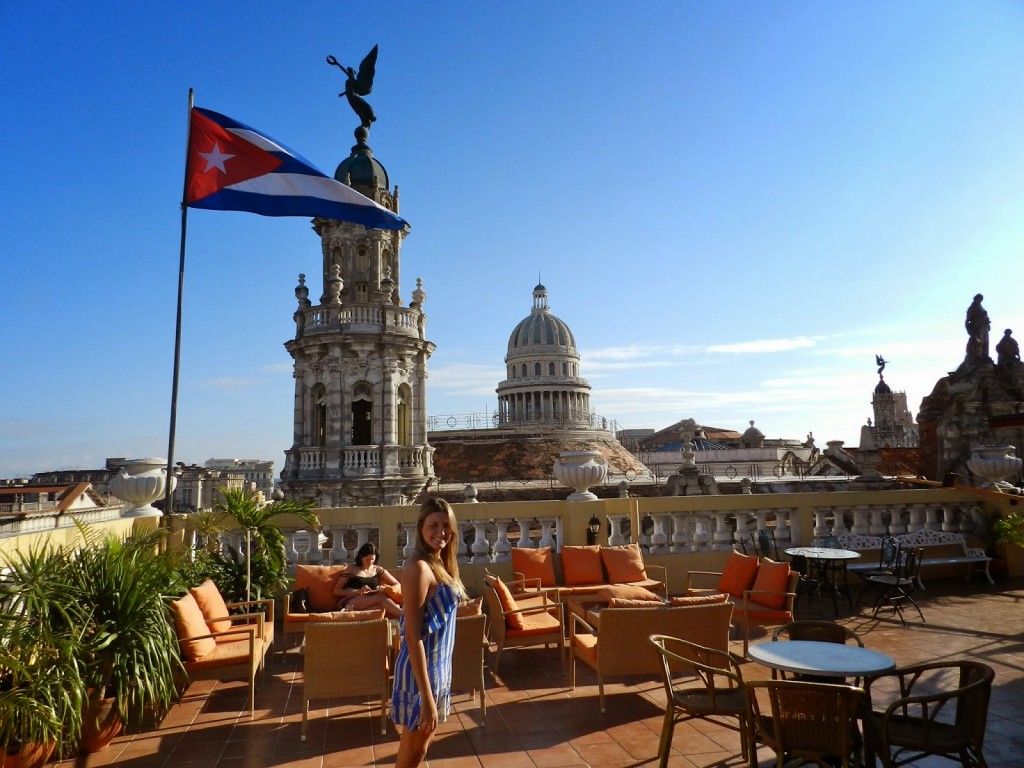
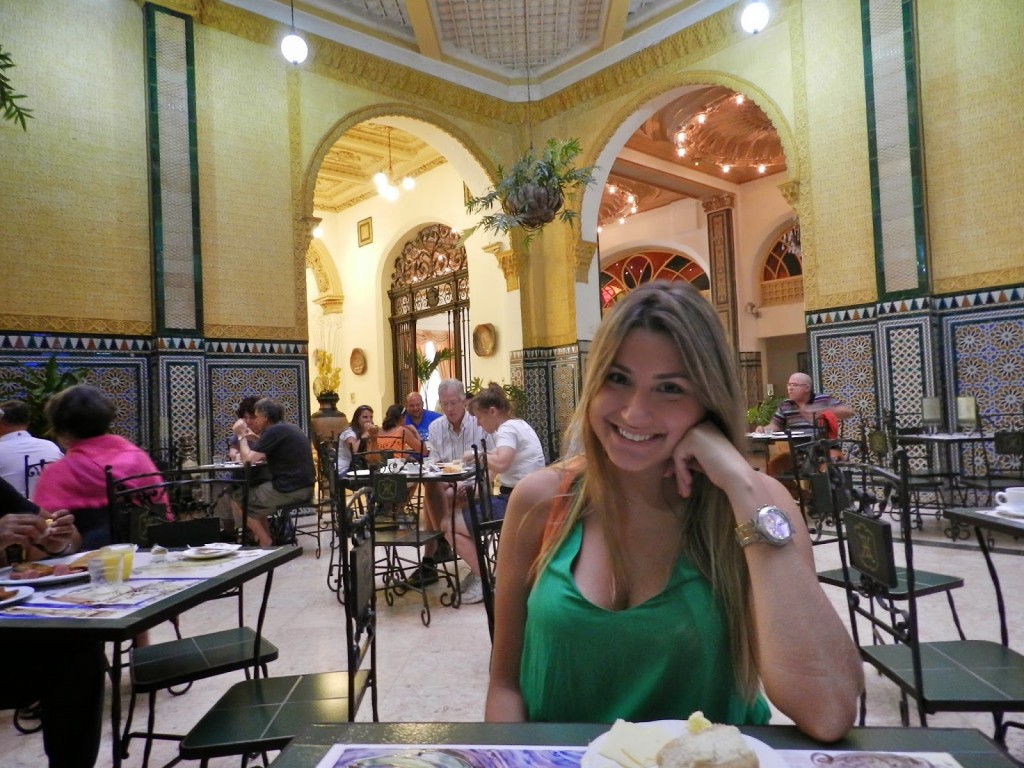
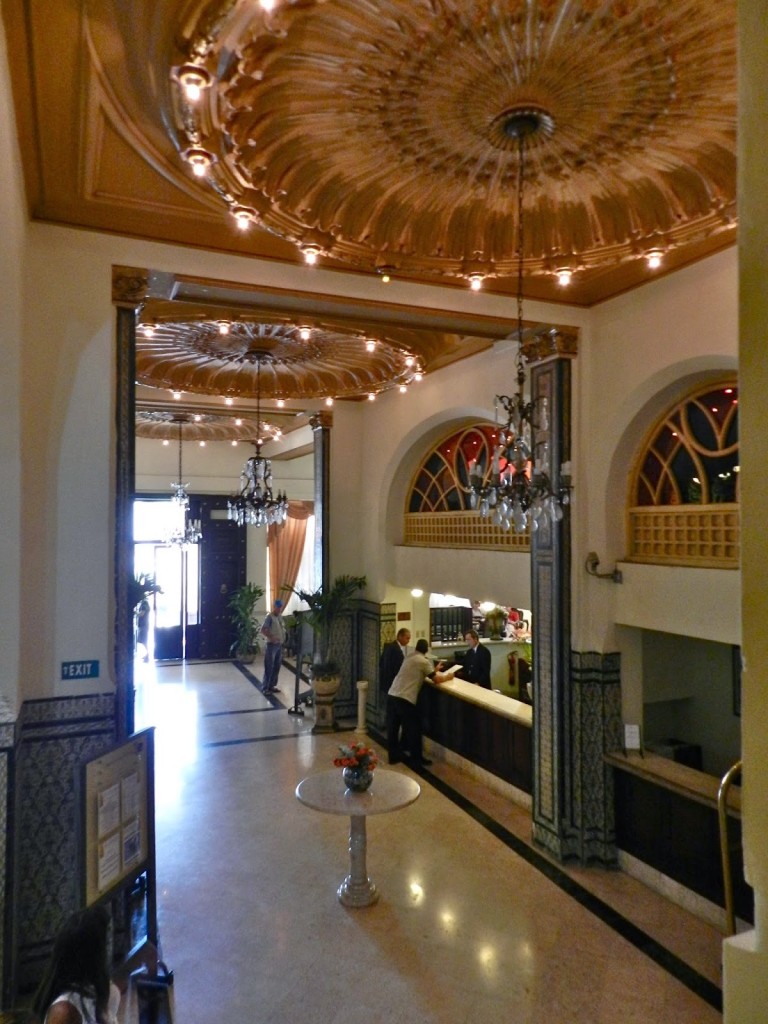
As well located as the Hotel Inglaterra (neighbors!), on the main avenue, Paseo del Prado.
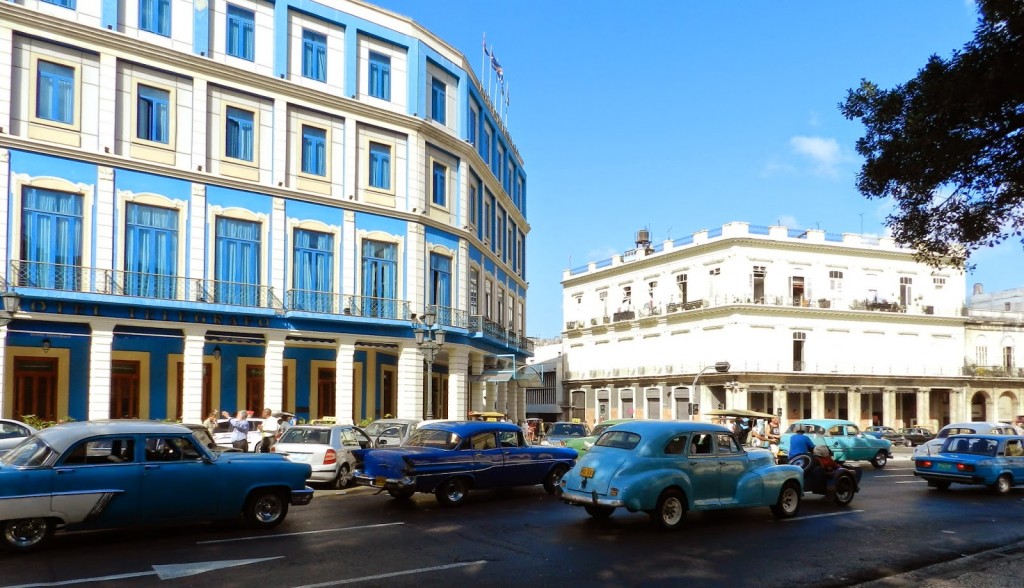
Sevilla is a hotel of the group Accor. Very traditional (even Al Capone has been there! LOL), very beautiful architecture. Very well located, close to Paseo del Prado. The hotel has a swimming pool on the 1st floor, and a great restaurant on the rooftop.
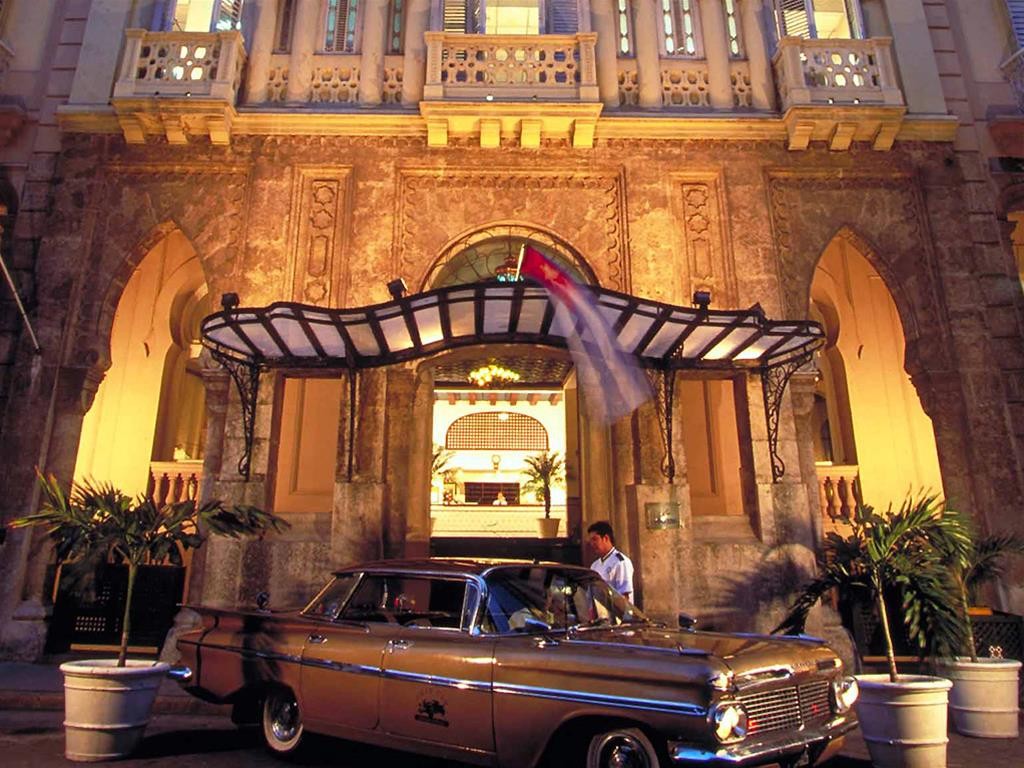
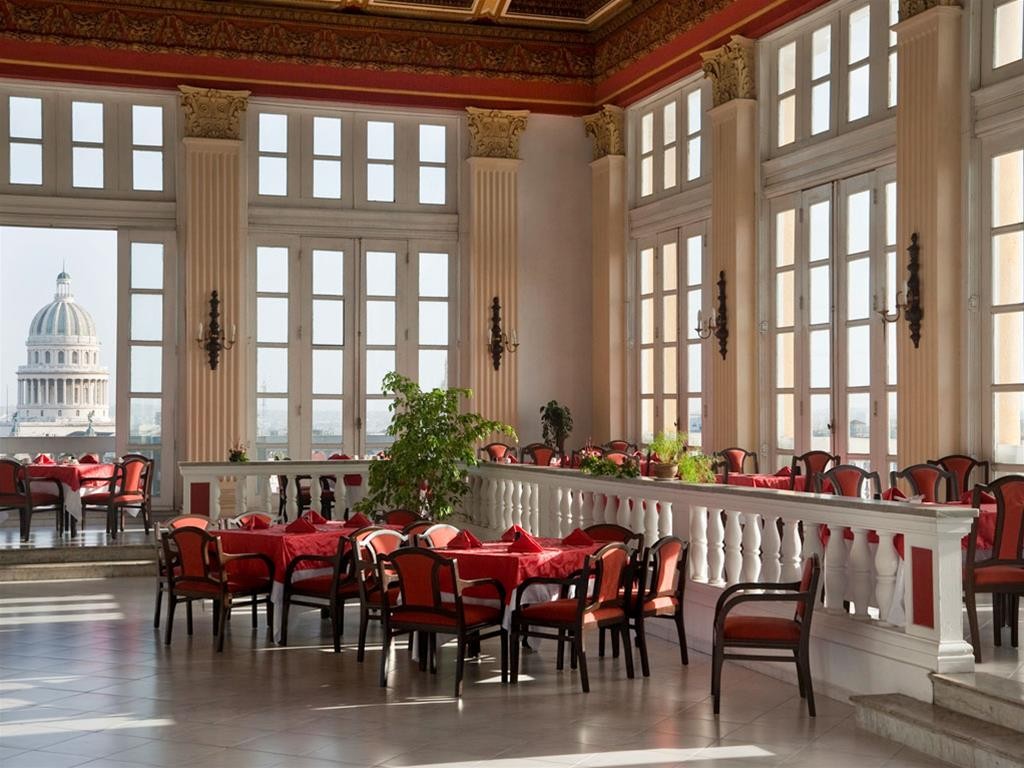
Beautiful boutique hotel located in a beautiful square in Habana Vieja: Plaza de Armas. Tip: even if you are not staying there, have a drink on the rooftop!
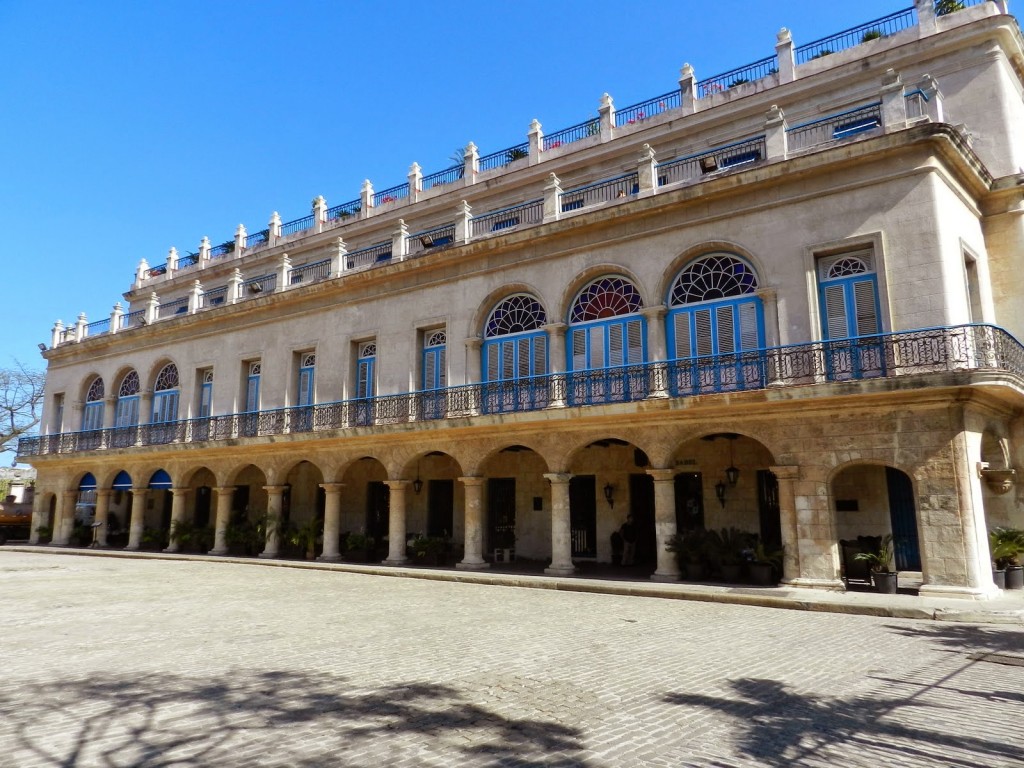
This hotel is VERY famous and touristic. But I don’t recommend it. It’s far from the city center… If you want to see the sights, you will need to take a taxi or a tuc tuc, instead of visit everything walking. You can visit the hotel anyway, even if you are not staying there! 😉
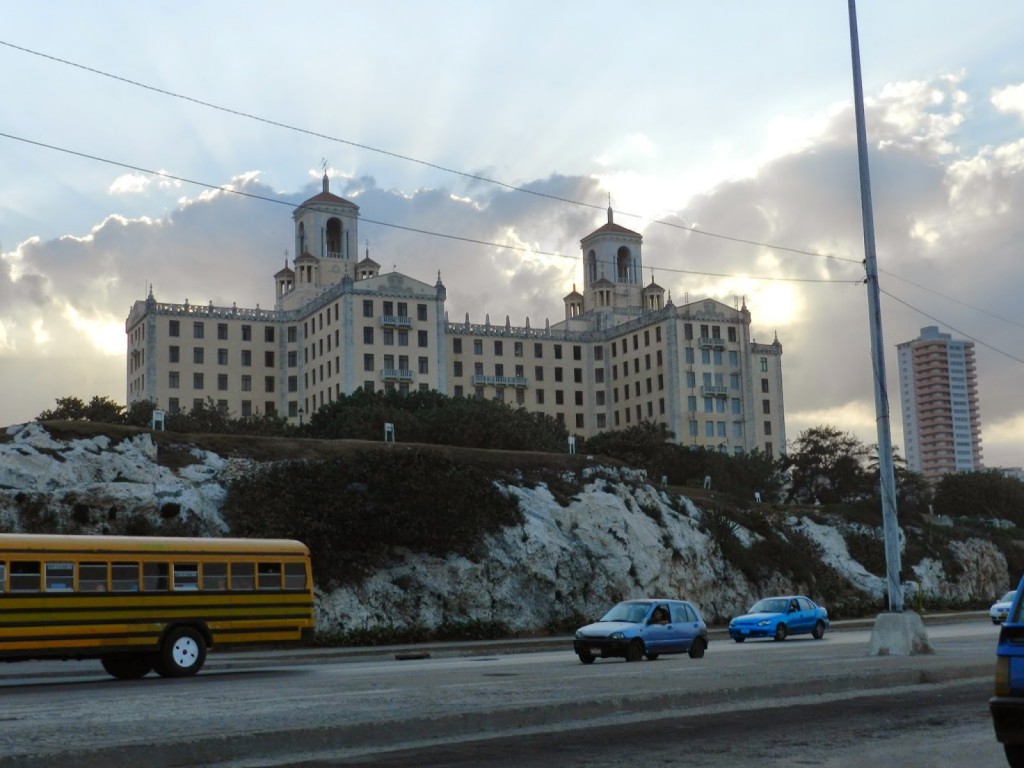
↑ Back to top
 Eat and drink
Eat and drink
Havana surprised me with its gastronomy. We have eaten and drank very well there!
Two typical dishes: moros y cristianos (rice and beans together) and ropa vieja (cooked shredded beef). Typical cocktails everybody knows, right? Mojitos and Daiquiris!! 😛
I LOVED this place. It’s where Ernest Hemingway used to take his Mojitos! I understand him: La Bodeguita has the best MOJITO of Cuba! Don’t miss the restaurant! Many people stay only at the bar. The “moros y cristianos” with “ropa vieja” there is delicious. All walls are written by tourists. Find a space and write your name there too!
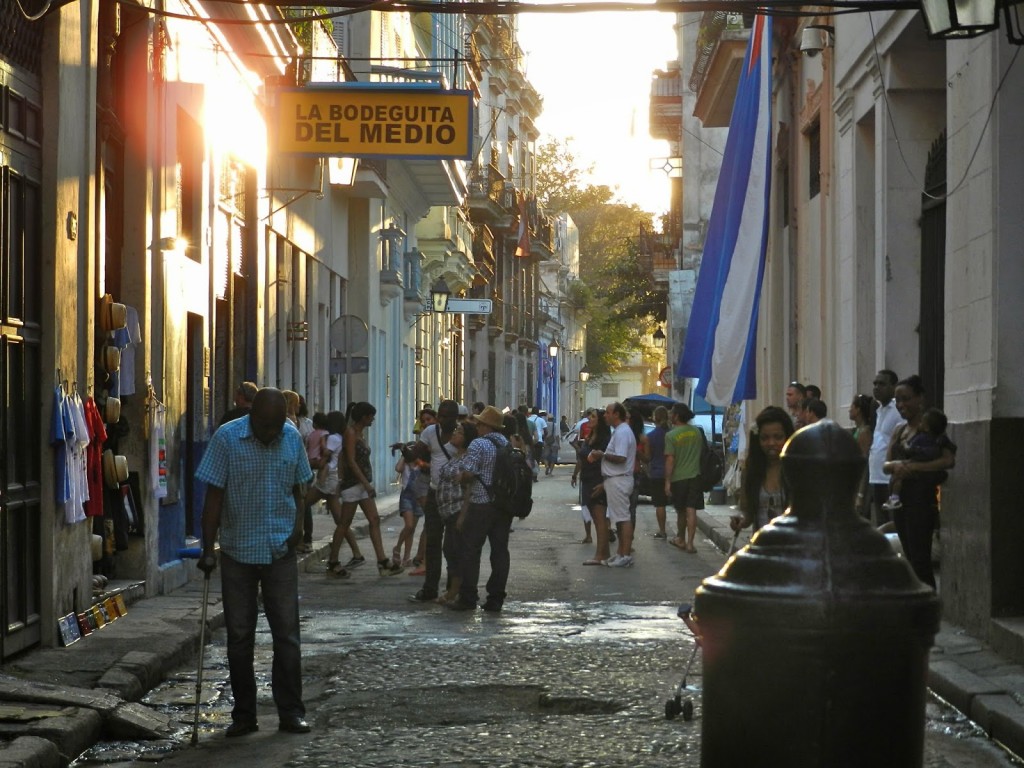
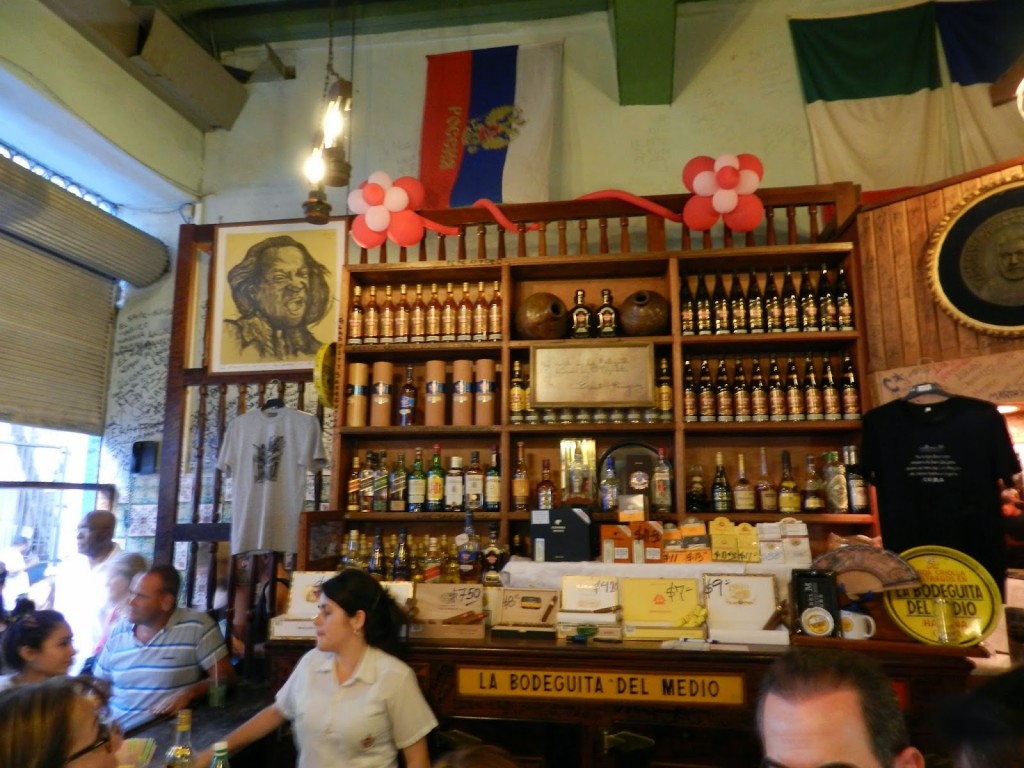
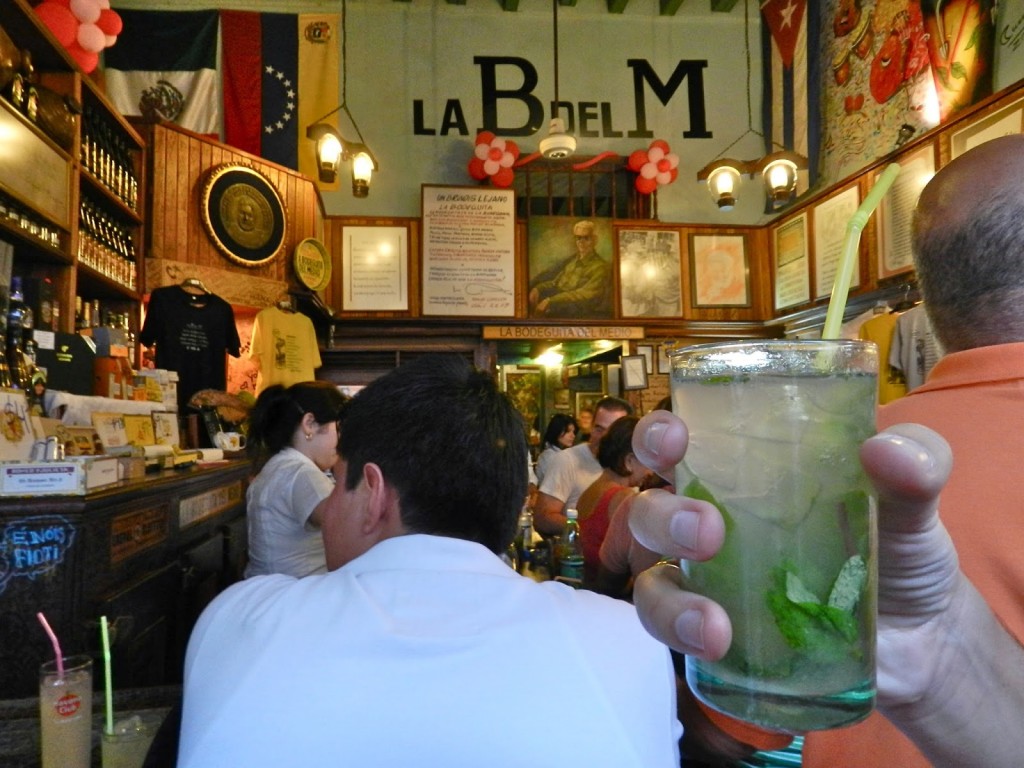
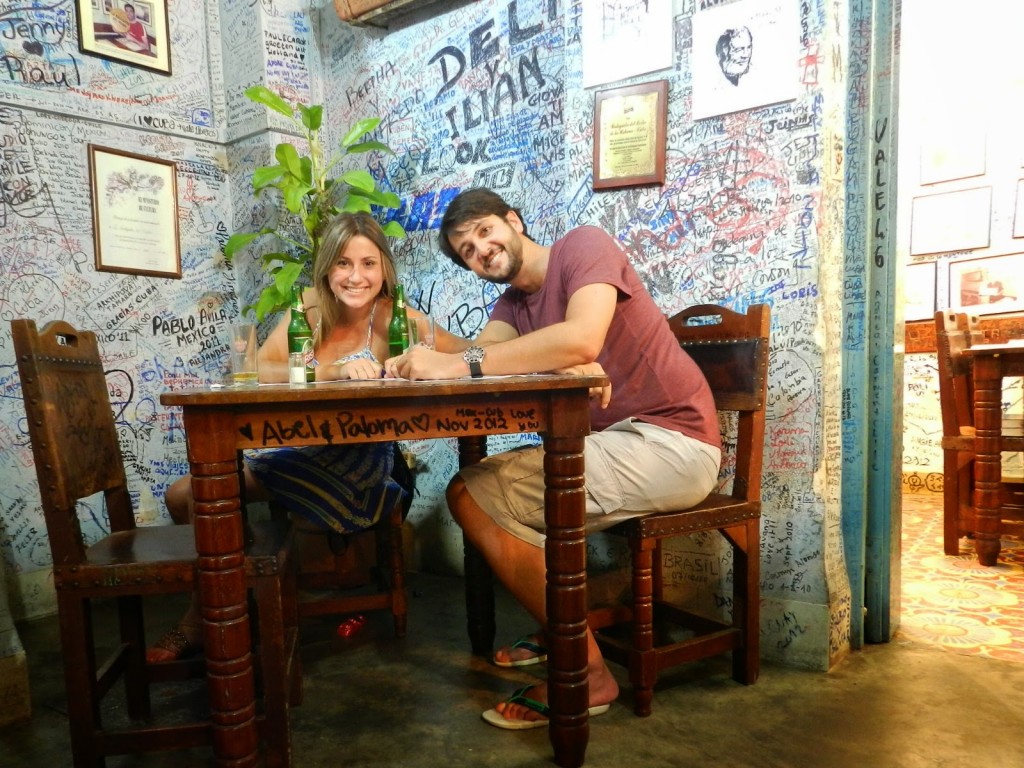
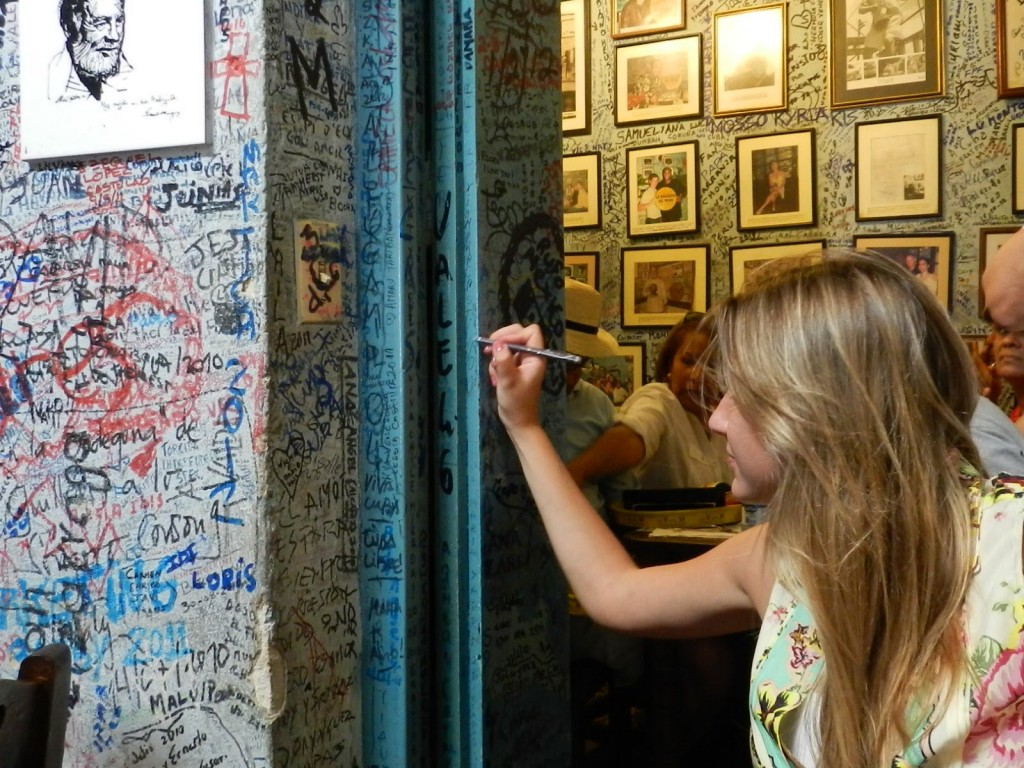
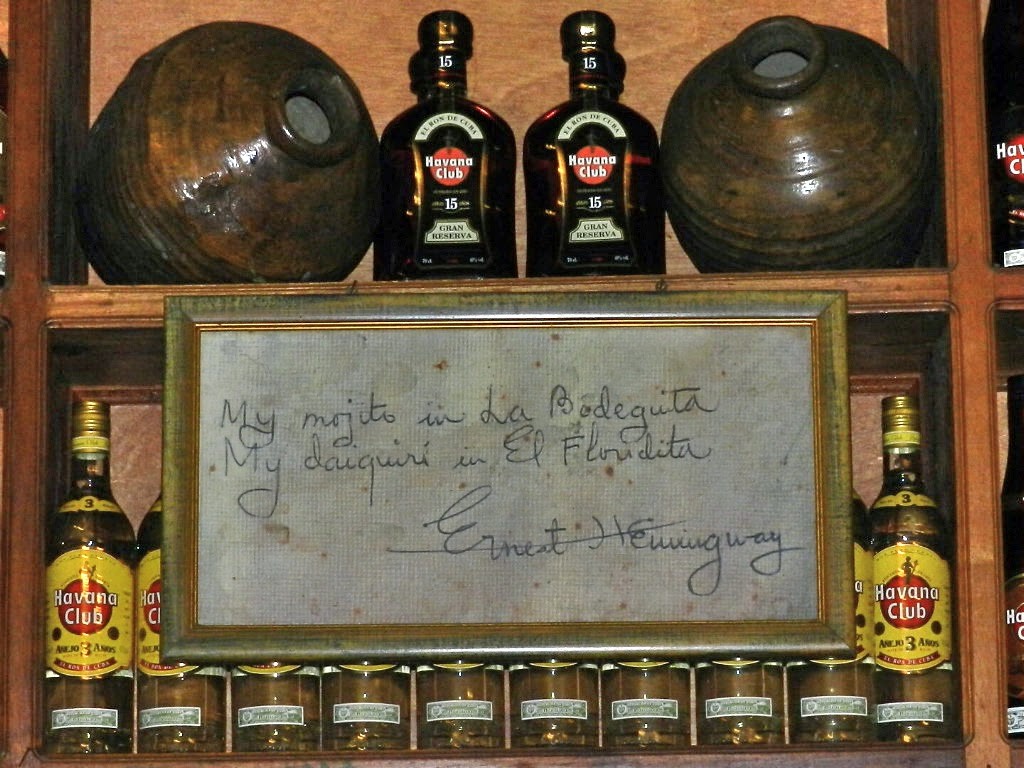
The Floridita, which its nickname is “La Cuna Del Daiquiri” (Daiquiri’s Cradle), is another classic of the Cuban capital. The place is known for making the best Daiquiri in town (cocktail made of rum, lemon juice and sugar). Ernest Hemingway also loved El Floridita. Very cuban-style (decadent luxury) and a pleasant atmosphere. It’s bar and restaurant. A must in your trip to Havana.
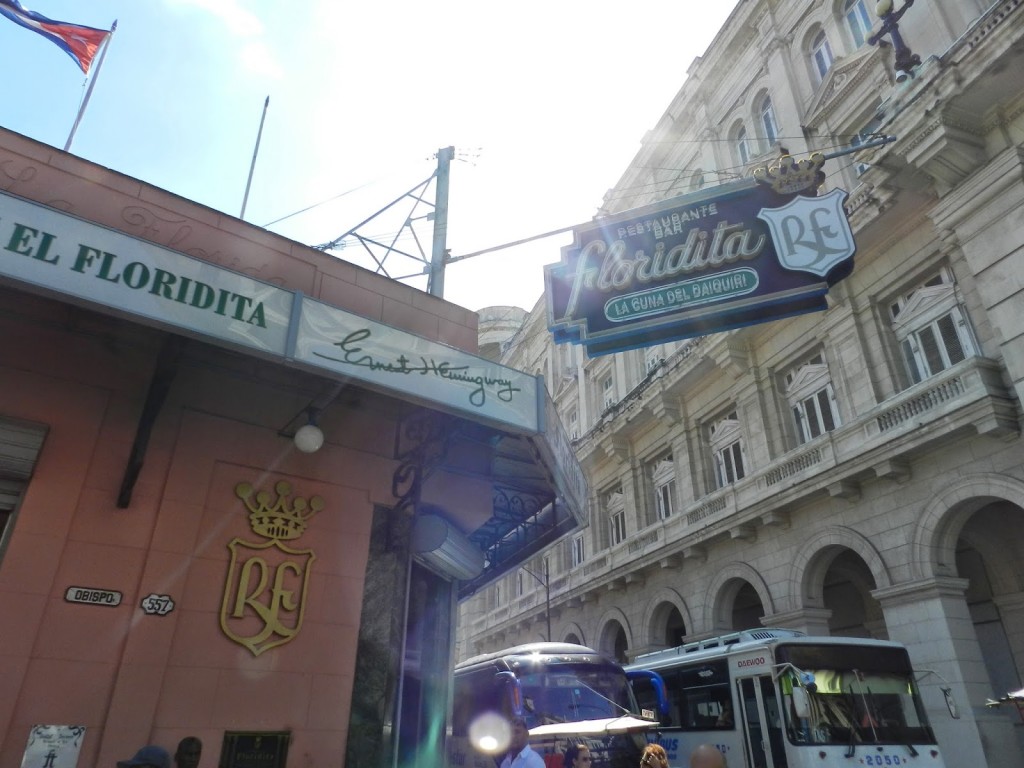
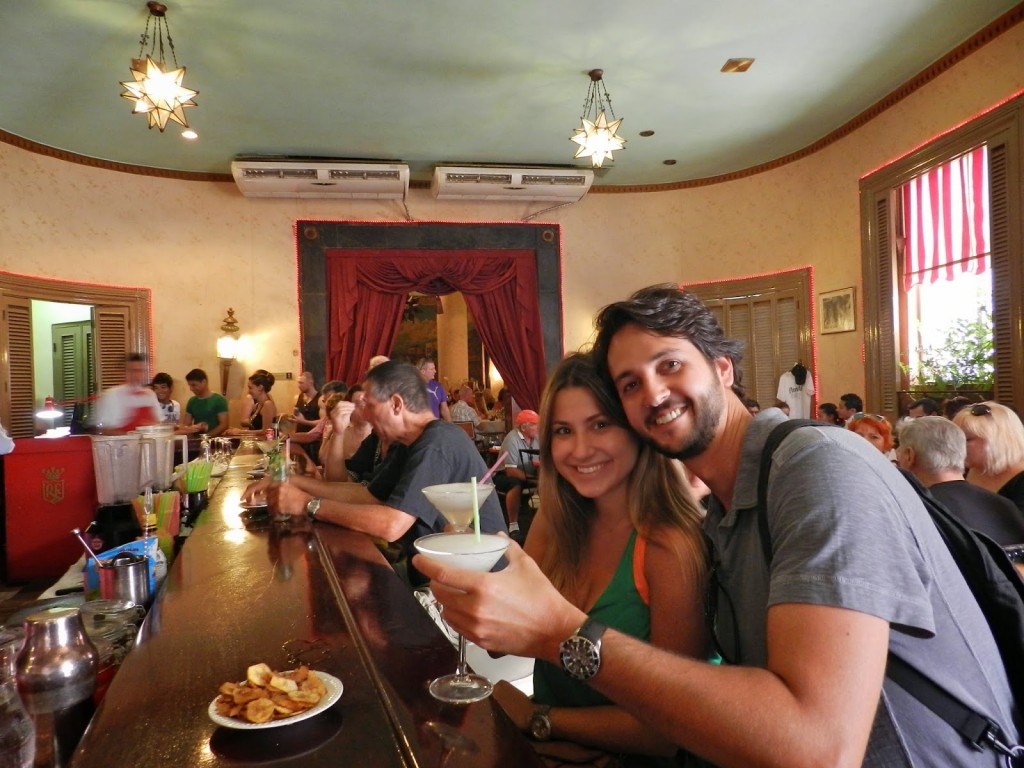
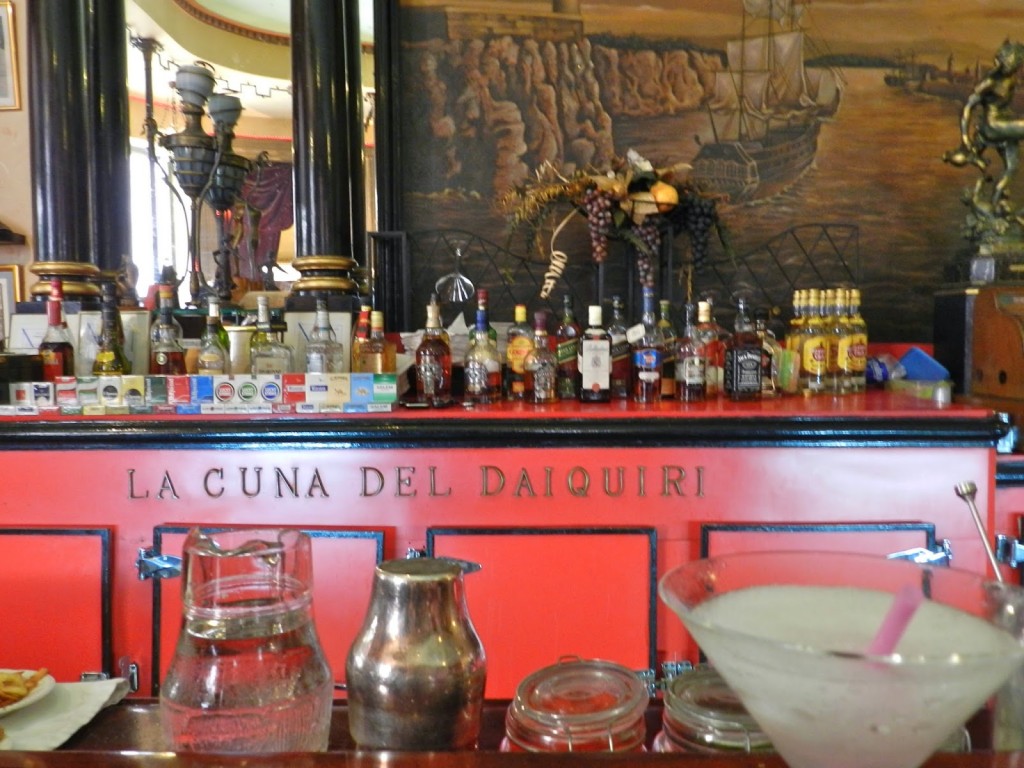
One of the highlights of the entire trip!! Awesome place! When you arrive there, an empty and dark street, you may think that you are at the wrong place. Then you enter a large door, with nothing inside (it’s an abandoned mansion)… But when you arrive to the 3rd floor, the confirmation that this is not a mistake!! The atmosphere is great (Fresa y Chocolate movie location) and the FOOD is even better! Delicious and creative dishes. Ask for a table on the small terrace to have an even better experience. You should book in advance through the restaurant’s website or writing directly to paladar@laguarida.com.
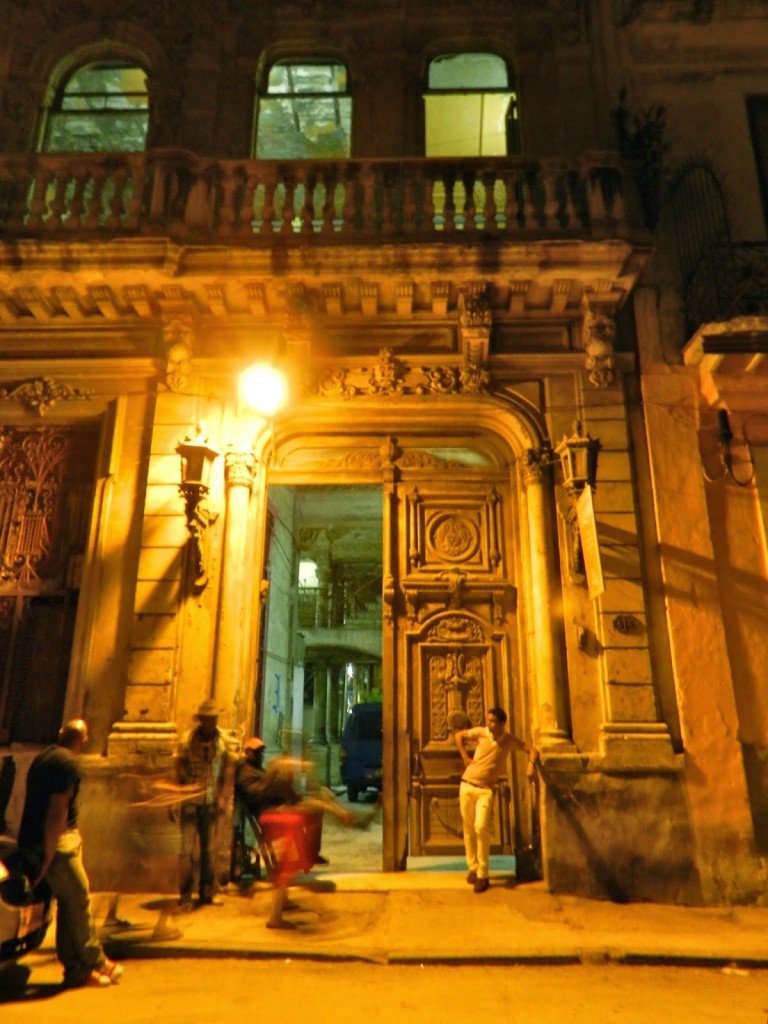
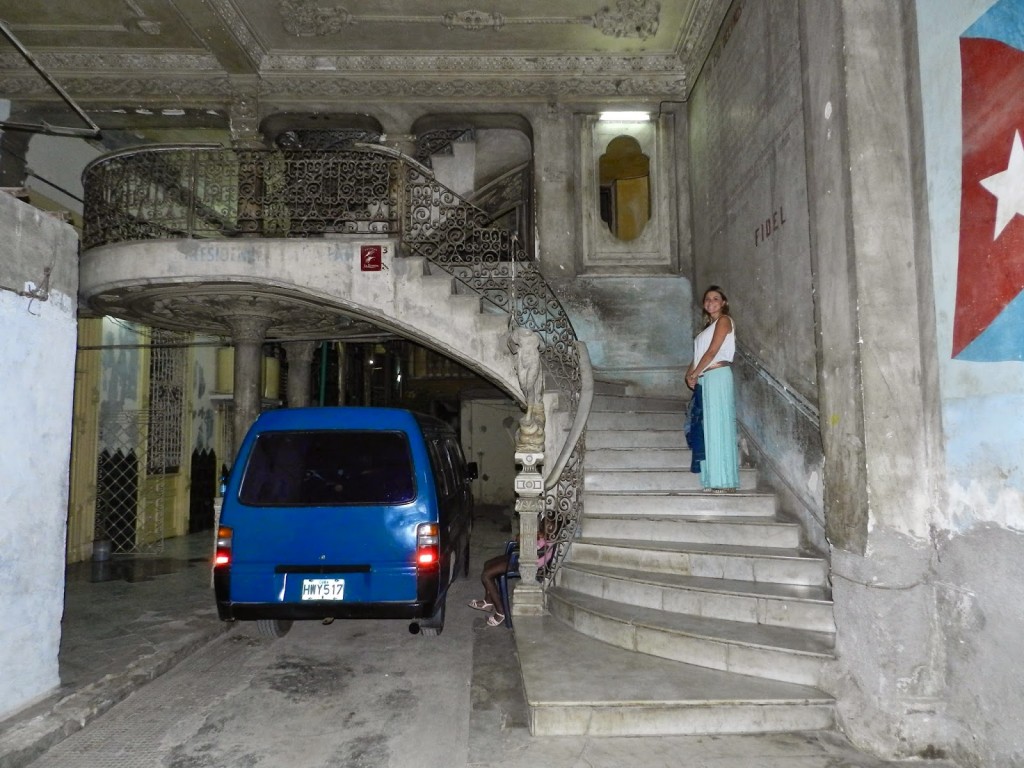
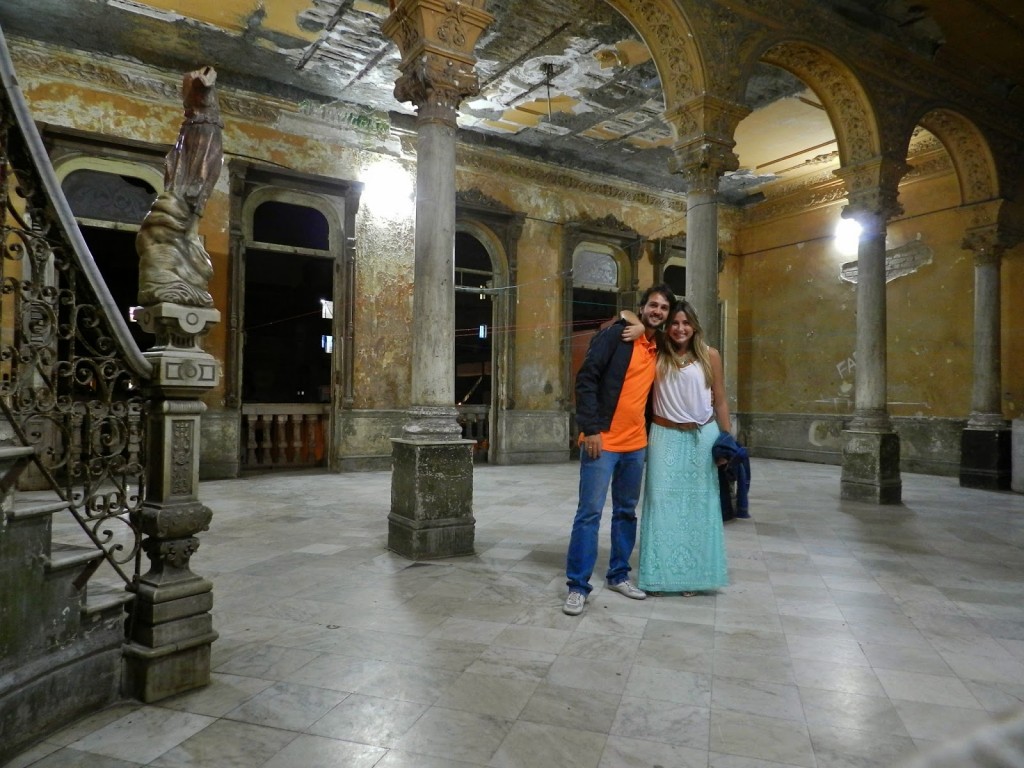
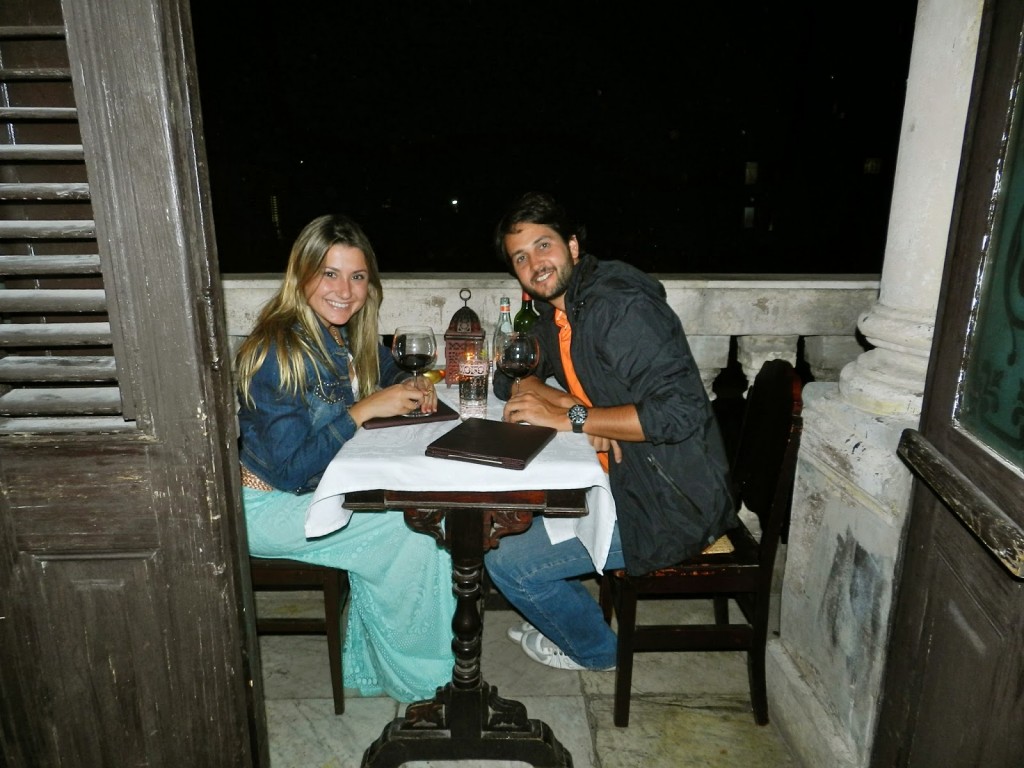
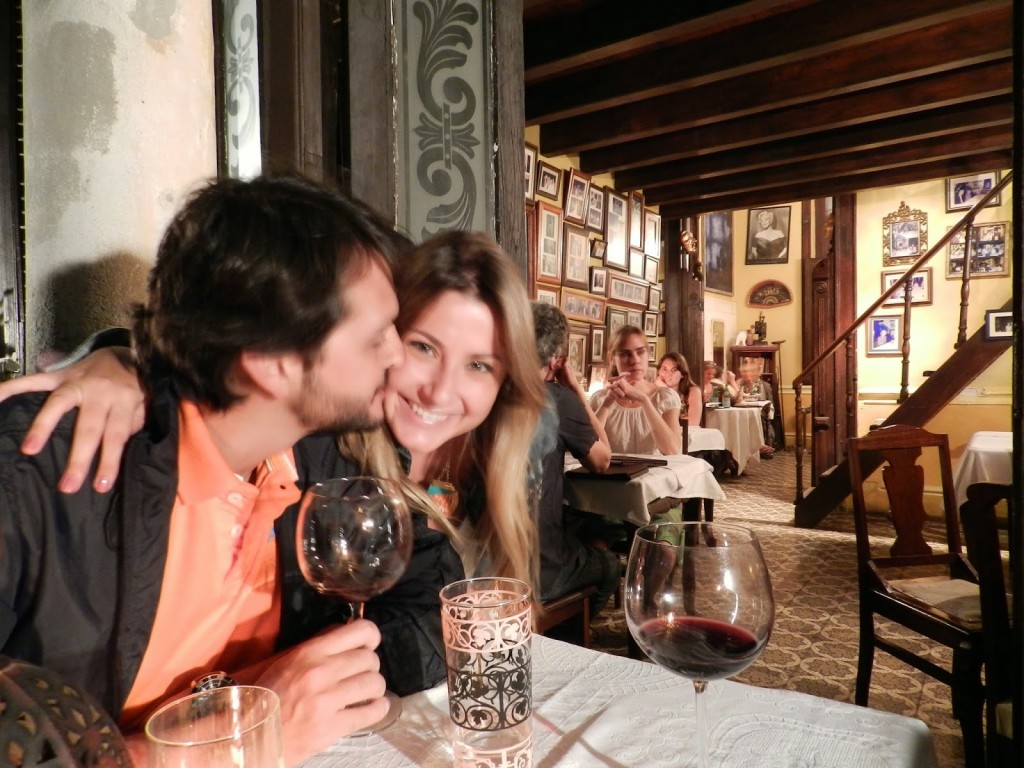


- Restaurants of Plaza de La Catedral
The square that hosts the San Cristobal Cathedral is full of cozy restaurants! They put tables outside… And the atmosphere is very pleasant, sometimes with live music. The restaurant that I ate there was called El Patio.
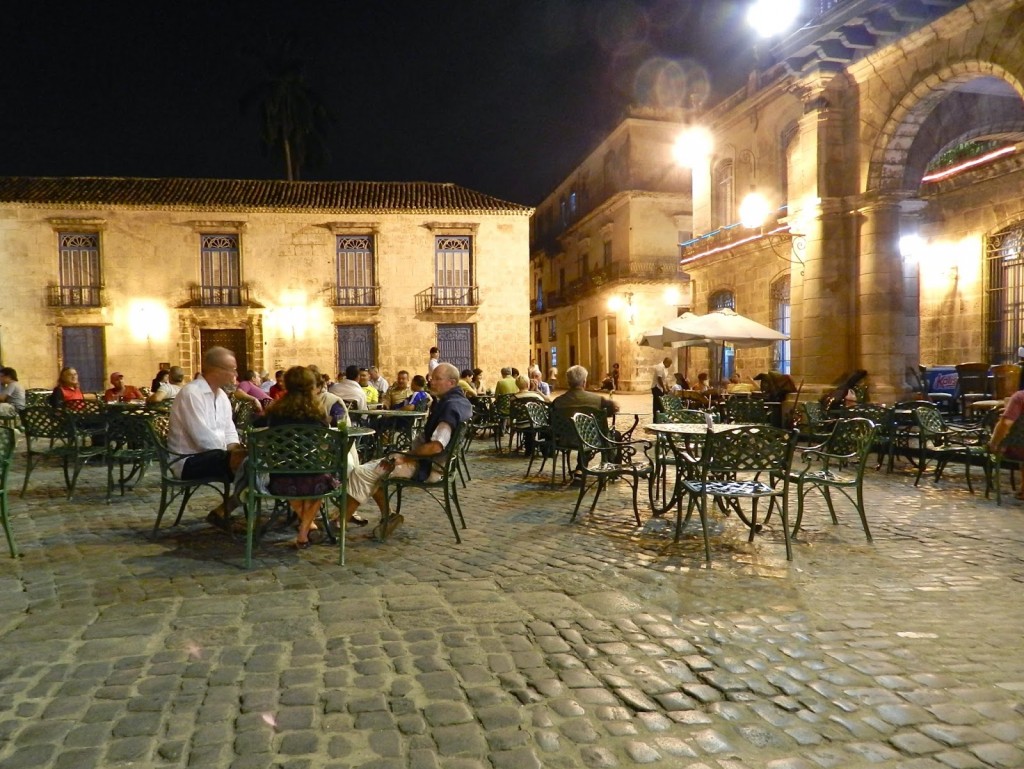
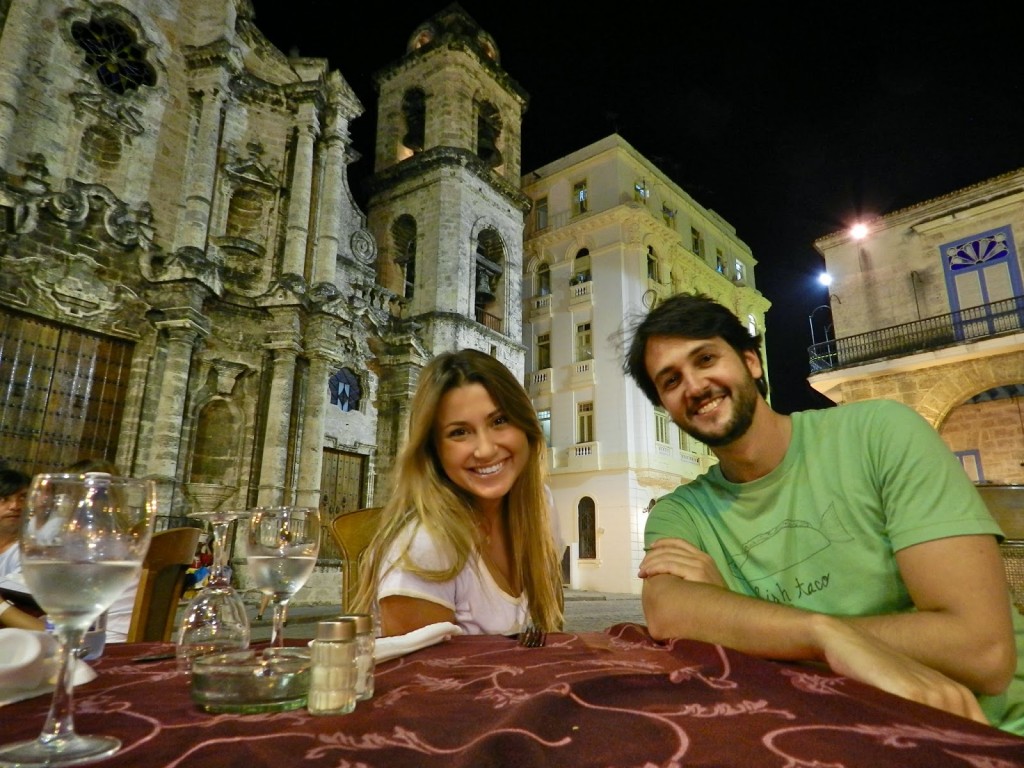
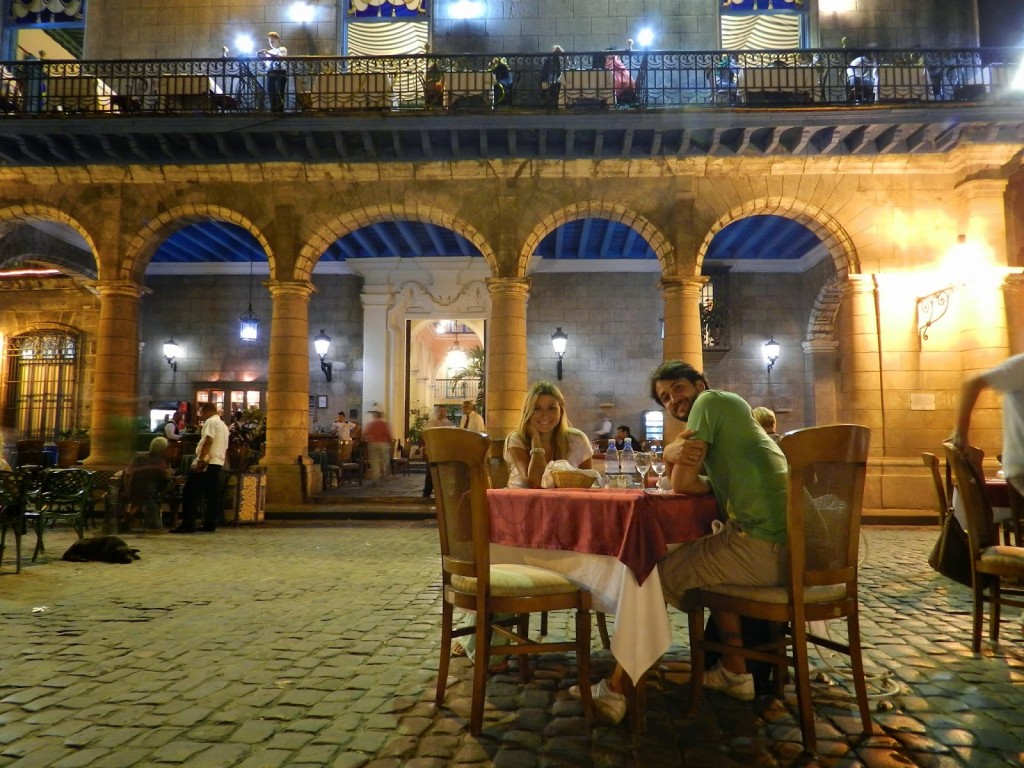
↑ Back to top
 Things to do
Things to do
Things to do in Havana besides eating, drinking, eating, drinking… LOL!
Suggested itinerary: 4 days
To enjoy the most of Havana!
1st DAY | Exploring Habana Vieja (walking)
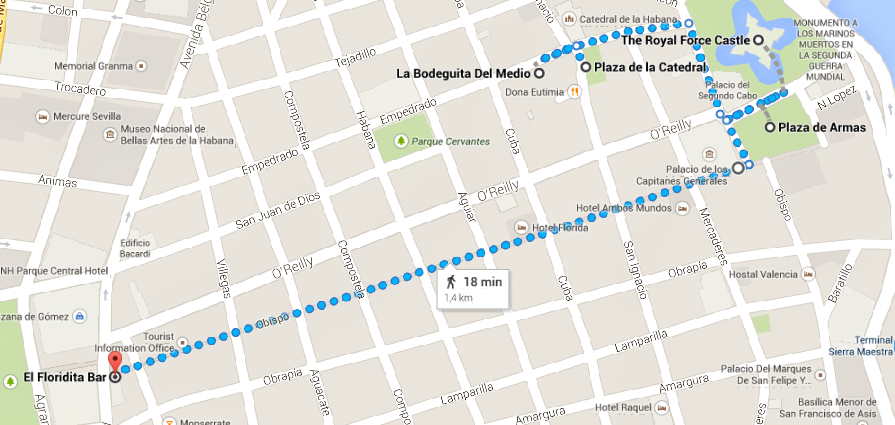
1. Plaza de La Catedral: start the tour with one of the most important symbols of the city. This square is beautiful during the day or night.
2. Catedral de San Cristóbal: this cathedral was built by the Jesuits in 1748 and was completed in 1777 by the Franciscans. The church has this name because, according to popular belief, until 1898 it kept the remains of Christopher Columbus.
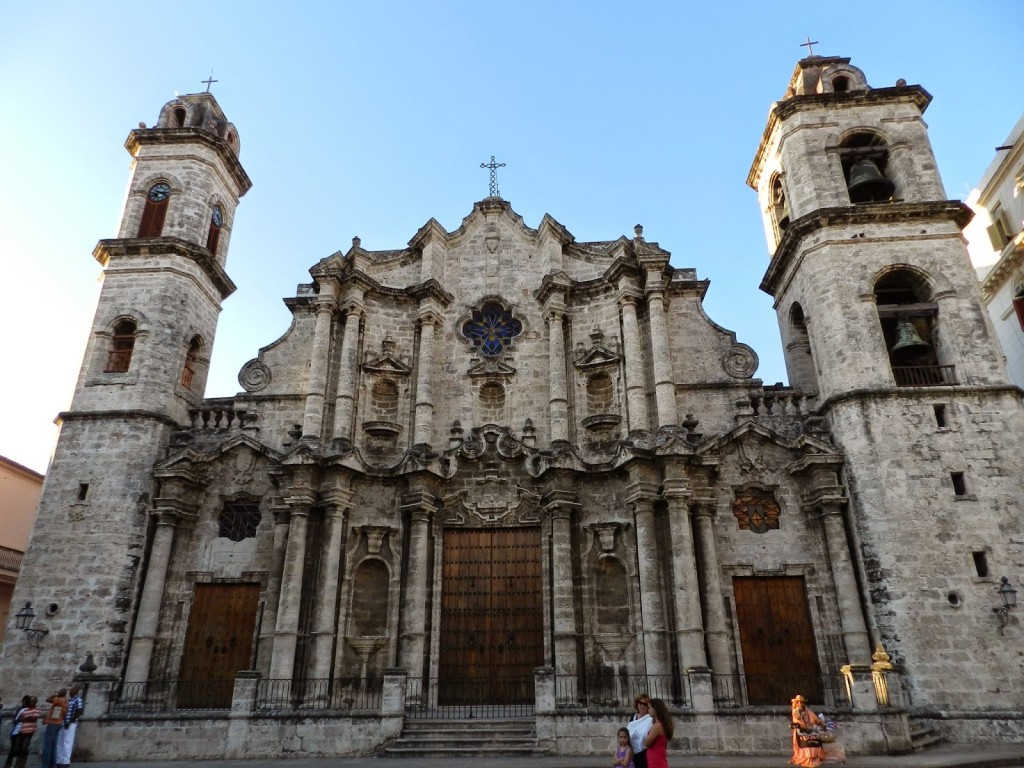
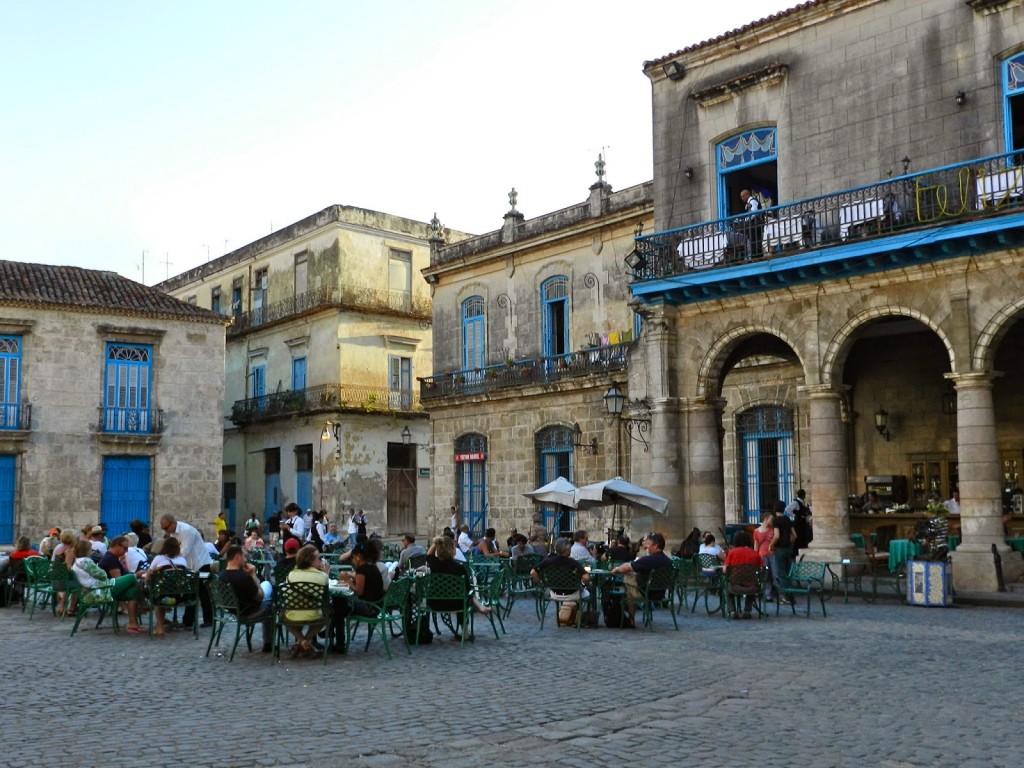
3. La Bodeguita del Medio: its is close to the Cathedral Square, at Calle Empedrado. Take the famous Mojito there (if you are already hungry, have lunch there too)
4. Plaza de Armas: this square is very beautiful, with a lot of interesting constructions (including the “Palácio de Los Capitanes Geneales” – you can visit it!). There’s also a daily books fair – very cool!
5. Hotel Santa Izabel: the Santa Izabel hotel is in this square, Plaza de Armas. A beautiful old mansion. Enter the place to have a drink on the rooftop.
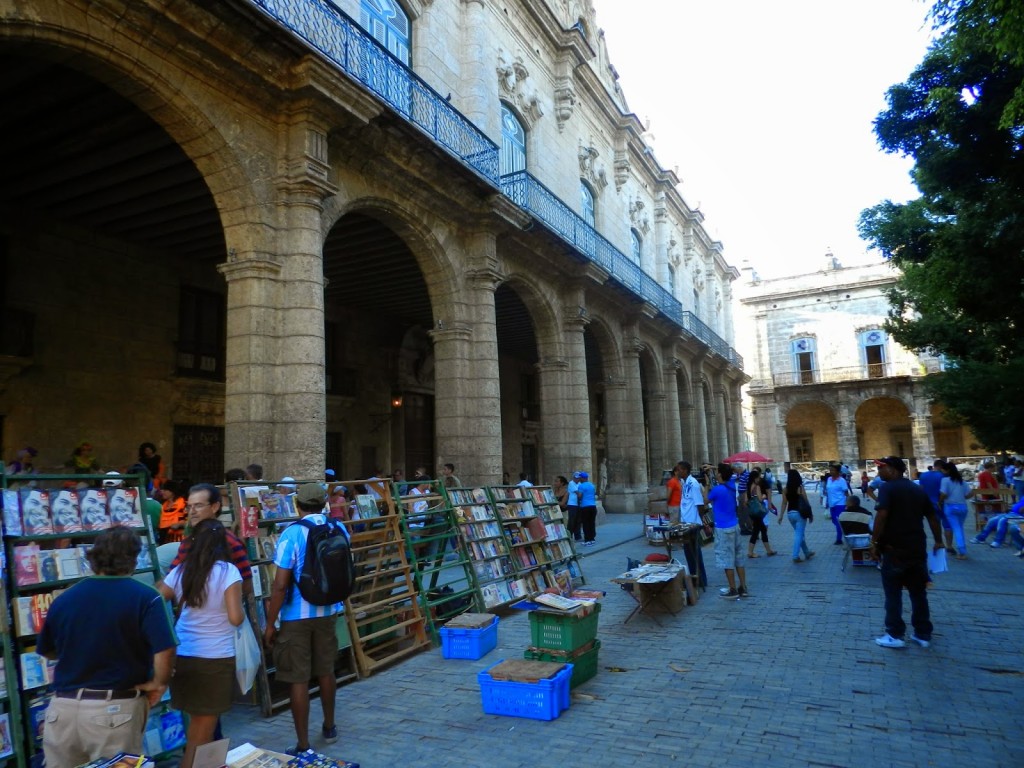
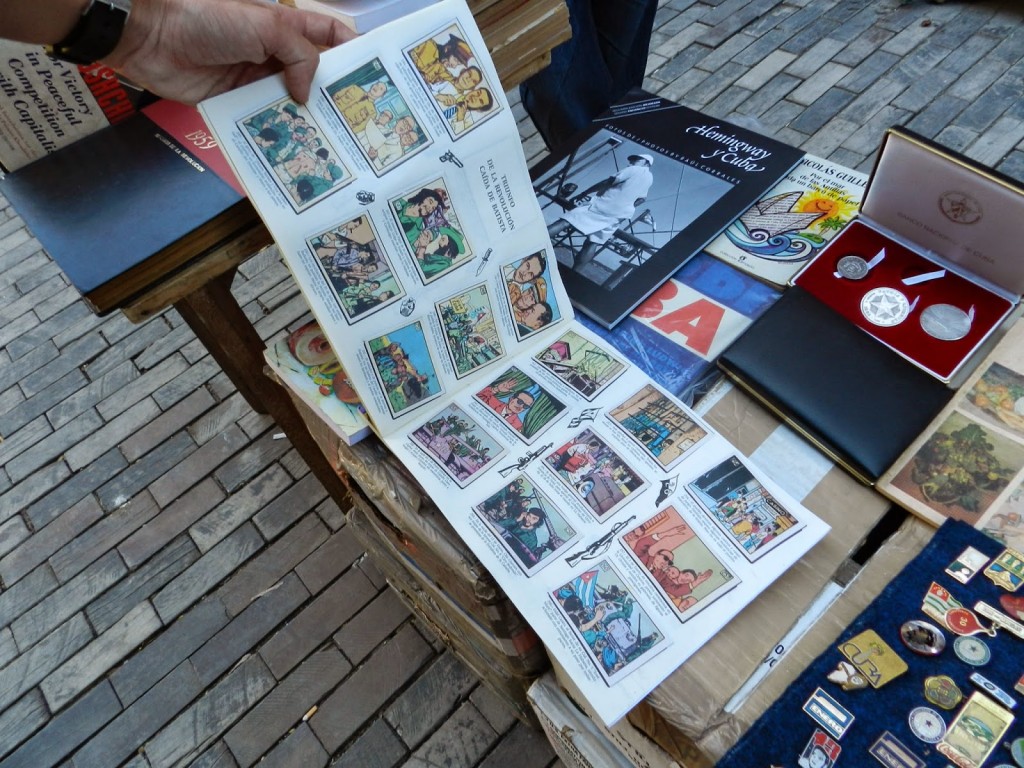
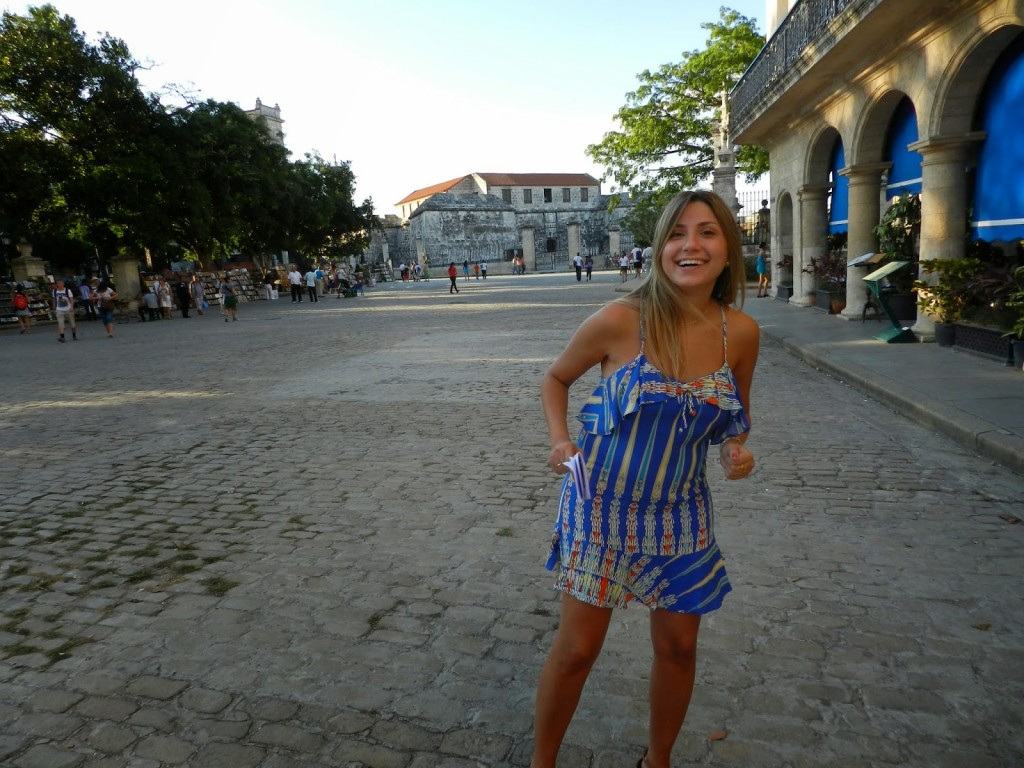
6. Castillo de La Real Fuerza: the oldest militar construction of Havana (1558-1577). It was built to protect the city of pirates. Nowadays, the Ceramic Museum is inside the Castle, but we didn’t get in.
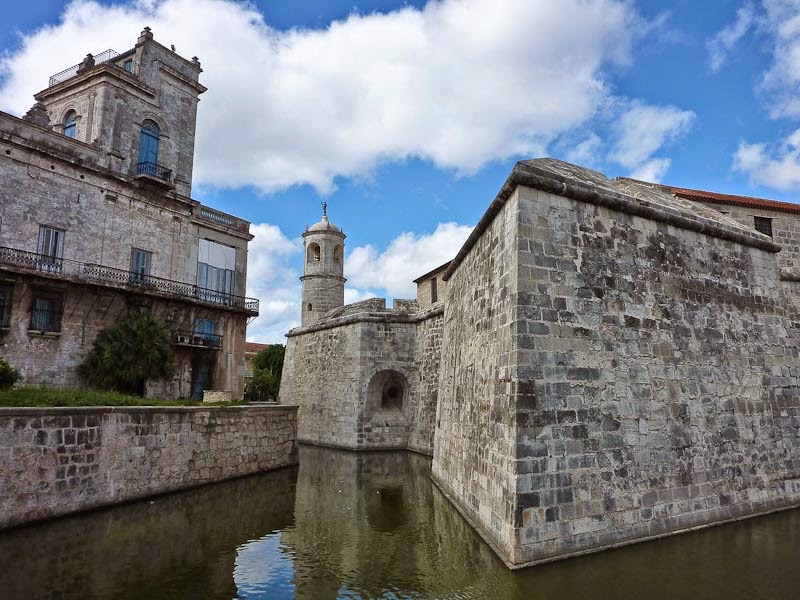
7. Obispo Street: go back to Paseo del Prado through this street, Calle Obispo, that is full of small and charming restaurants, stores and live music (Havana is very musical!). Go see the old pharmacy, Taquechel.
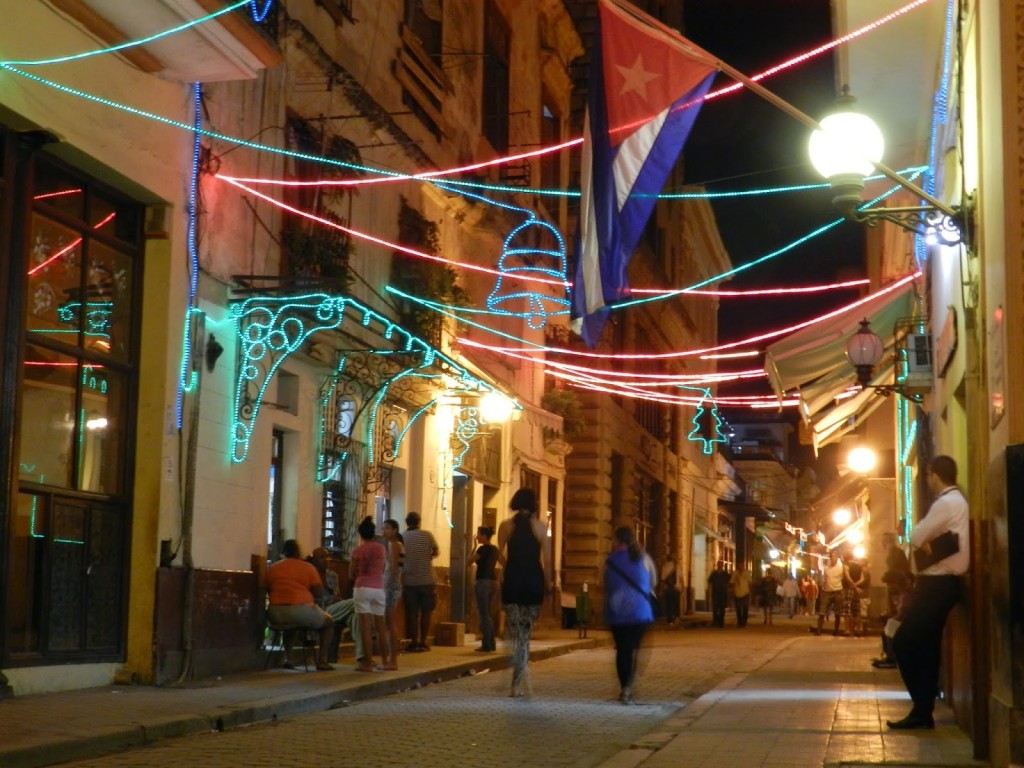
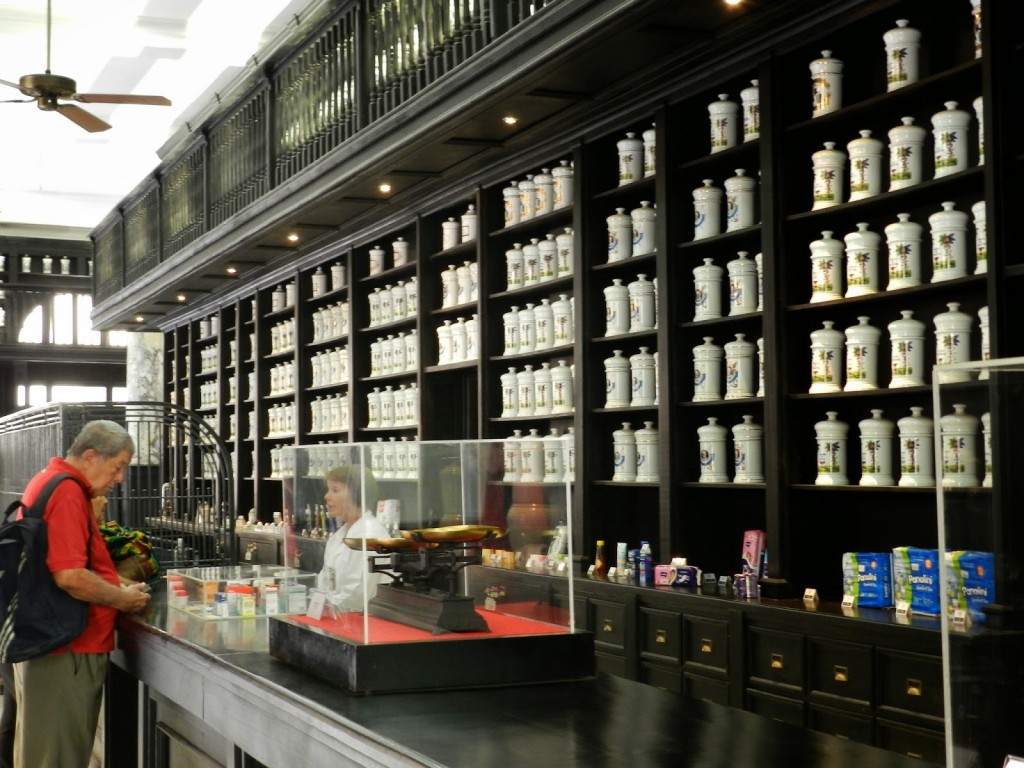
The video below was recorded at La Pérgola Restaurant, in Obispo Street, with live cuban music! Nice!
8. El Floridita: on Calle Obispo, corner with Av. Belgium, there is the famous bar/restaurant El Floridita. Take some daiquiris for a “grand finale”! 😉
2nd DAY | Paseo del Prado & Revolution Museum
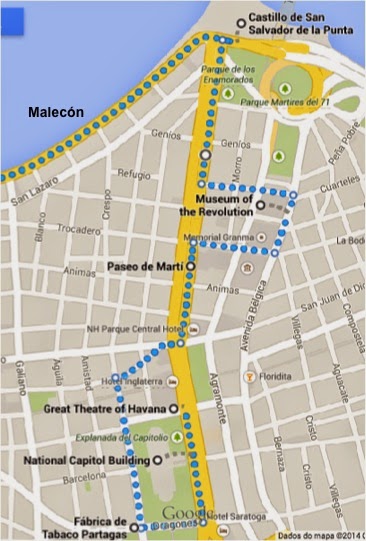
1. Gran Teatro de La Habana: beautiful building, opened in 1838. It’s the “home” of the Cuban National Ballet.
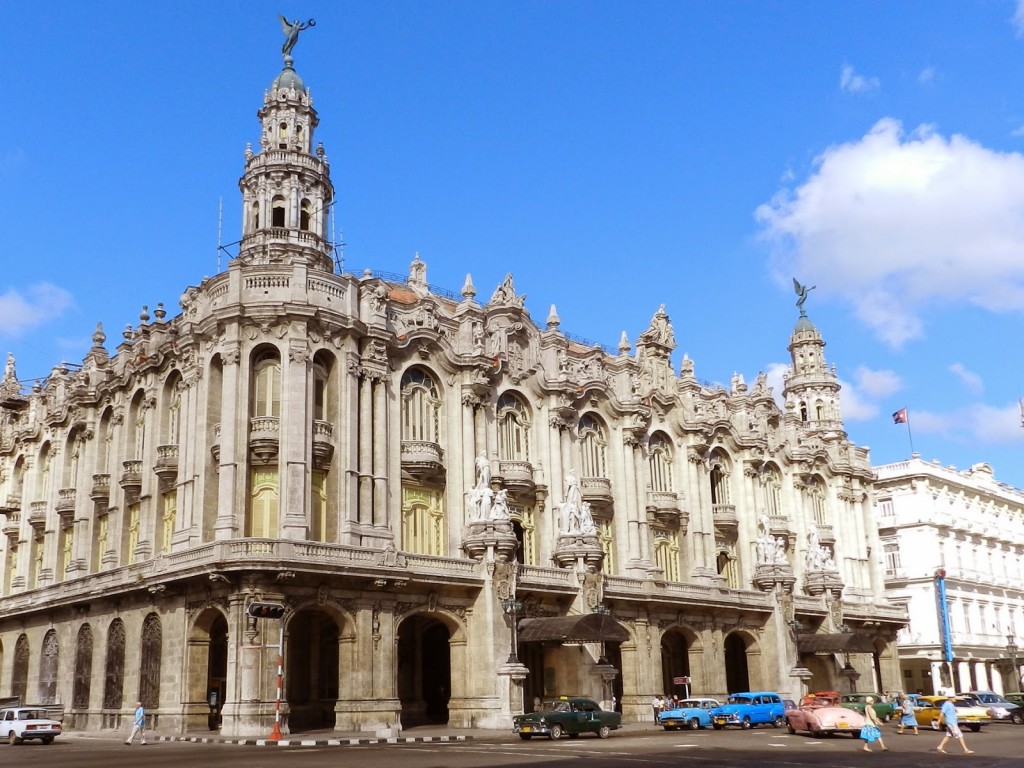
2. Capitol: it has opened in 1929 and it’s an assumed imitation of the Capitol of Washington DC, but taller. It used to be the seat of the Cuban Congress, but since 1959 has been home to the Cuban Academy of Science and the National Library of Science and Technology.
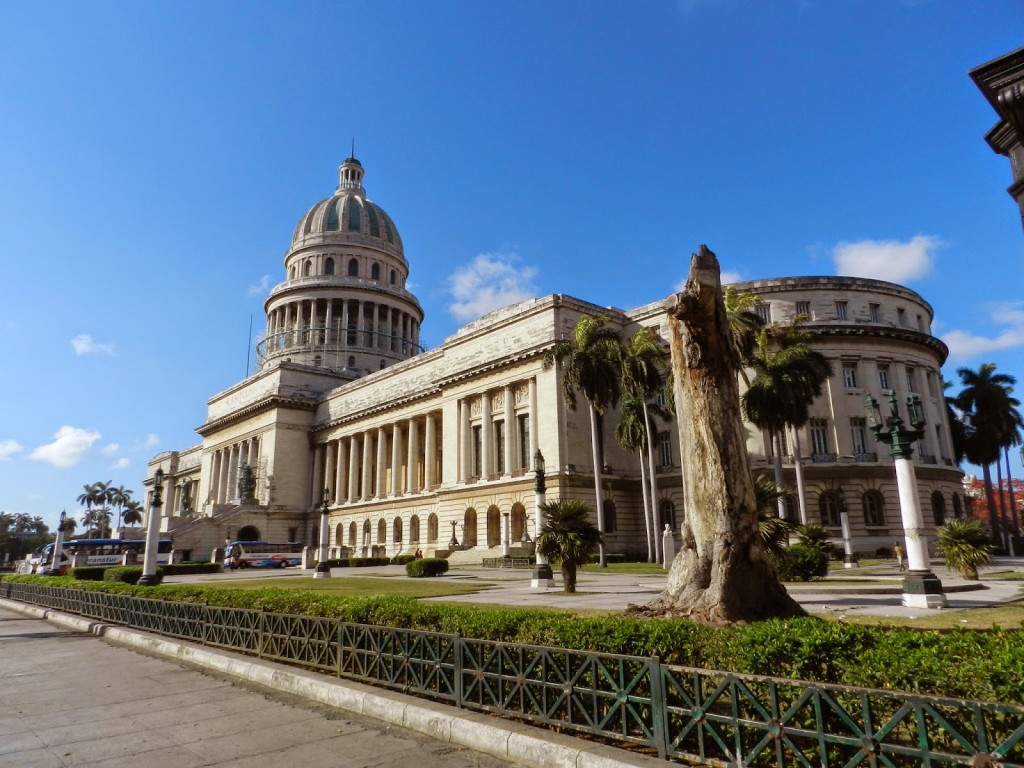
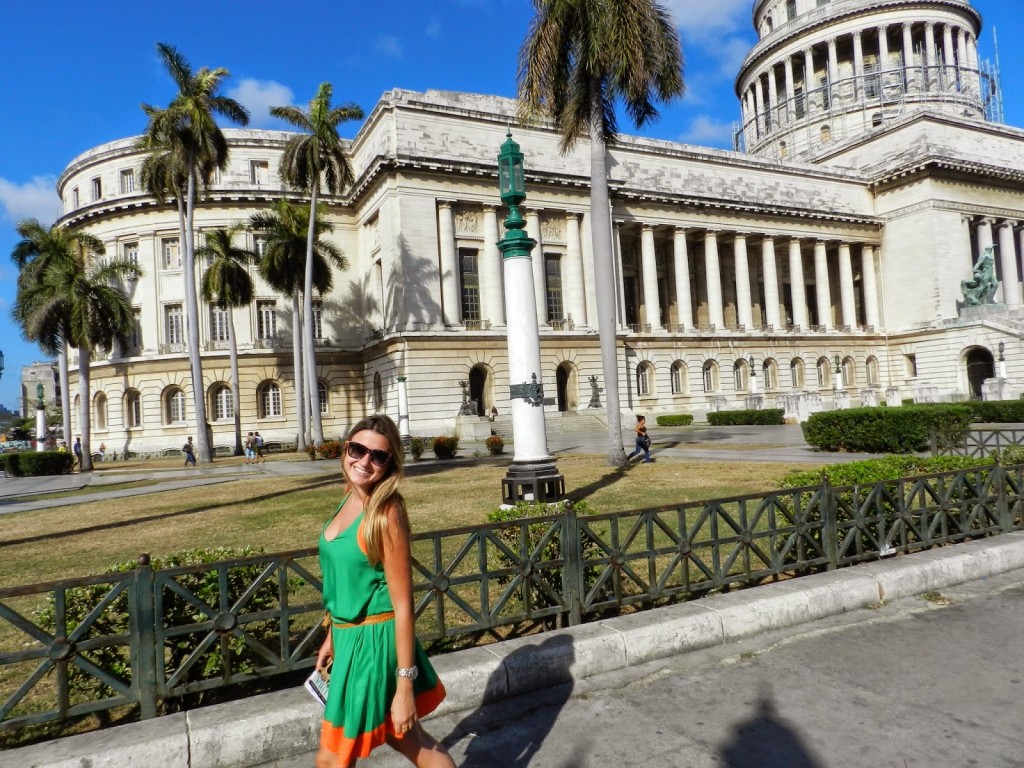
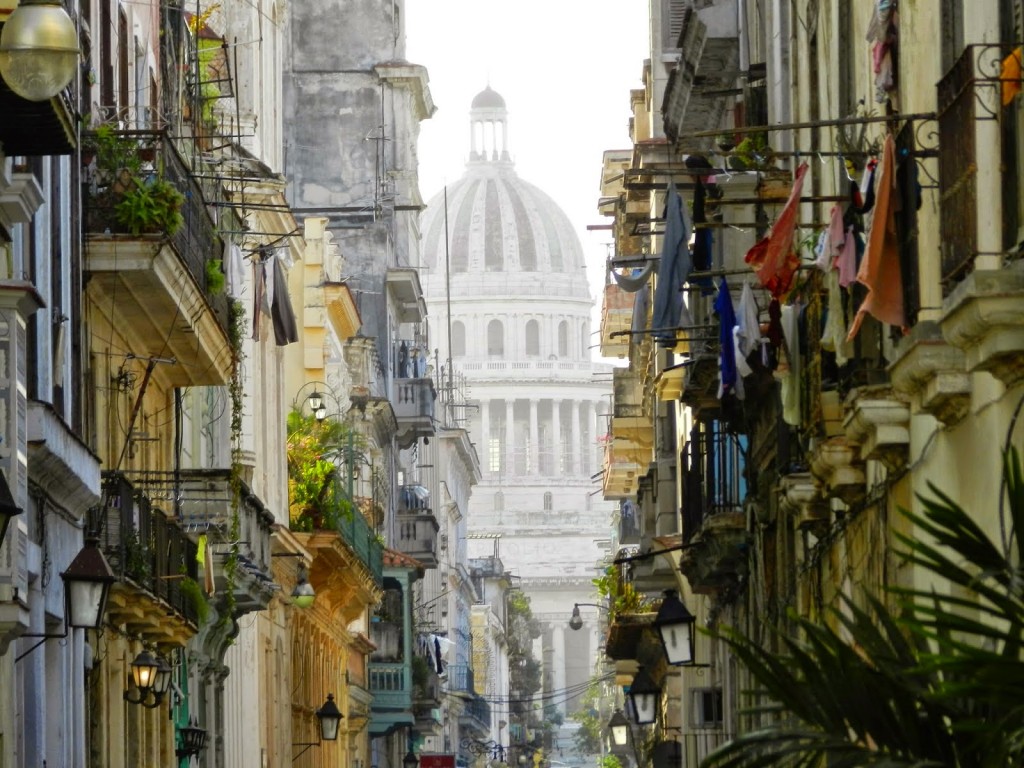
3. Real Fábrica de Tabacos Partagás (cigar factory): almost behind the Capitol, on Calle Indústria, is the building of the Real Fábrica de Tabacos Partagás, the biggest Cuban Cigars factory, founded in 1845. When I was in Havana, the factory was no longer in this building, but in a distant address (it was under renovation). Inside there is a shop where you can buy various types and brands of original cigars.
In this itinerary, the VISIT to the factory is in another day, due to the location – a little bit far (but don’t know if Partagás has returned to its original place).
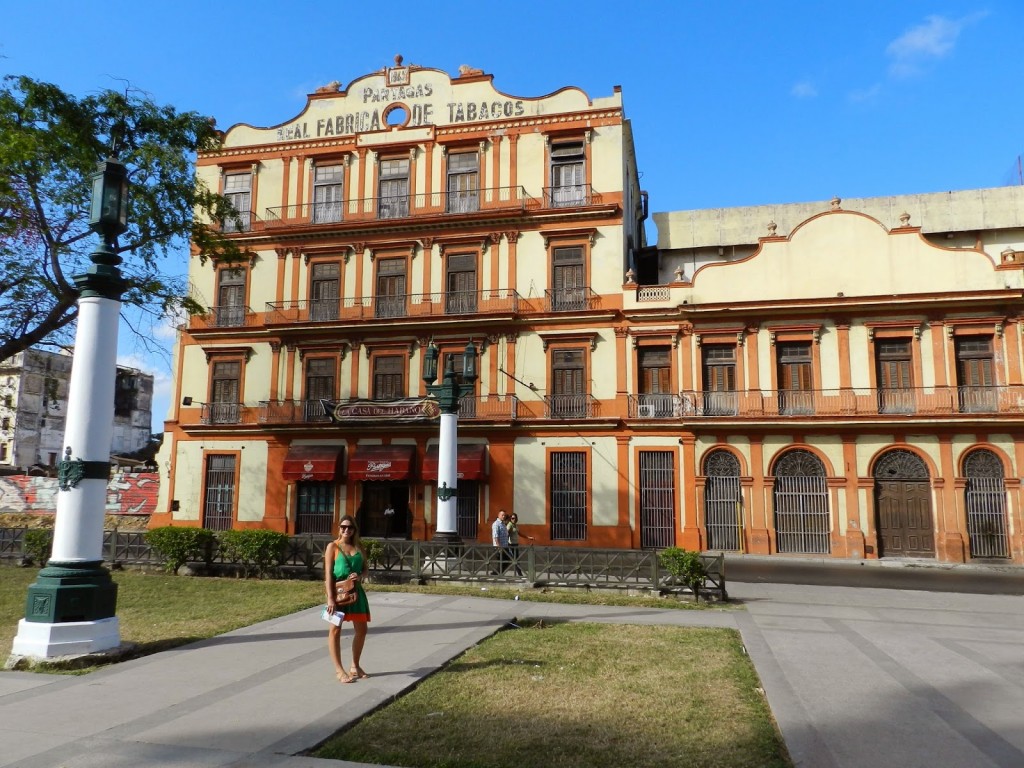
4. Paseo del Prado (ou Paseo de Martí): this avenue, where most of hotels, the Capitol and the Gran Theater are, is beautiful. The “Paseo” was built in 1772 and it was “the place” for the aristocracy, with its carriages. Go walking towards the sea, and you will arrive to the Revolution Museum.
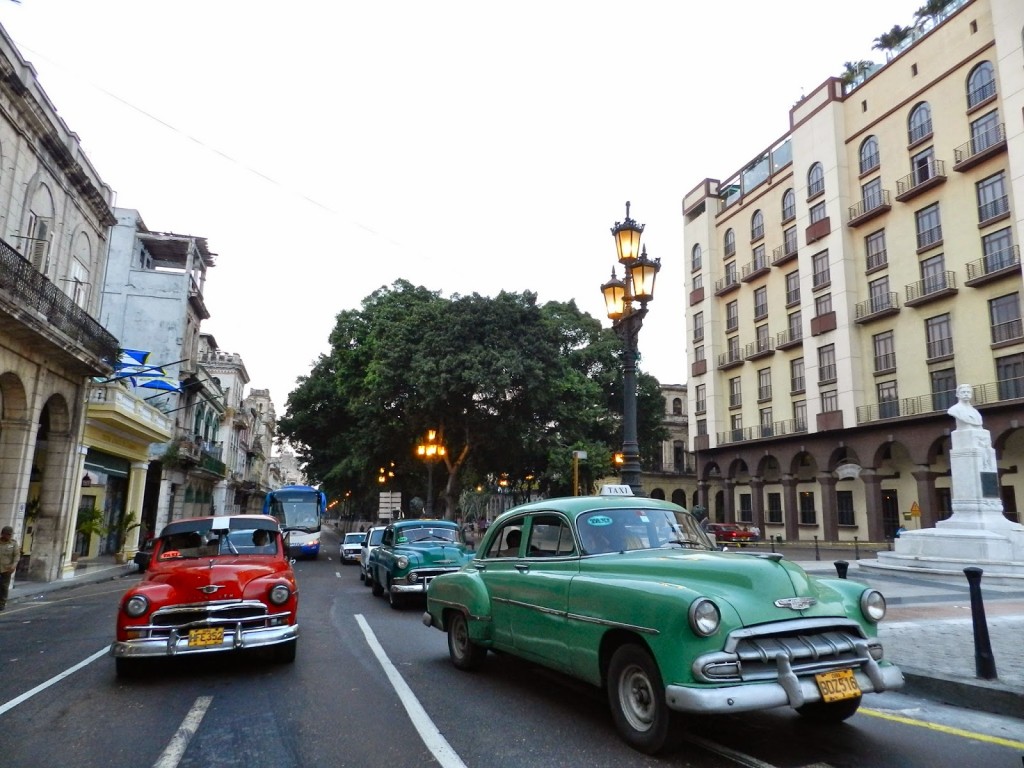
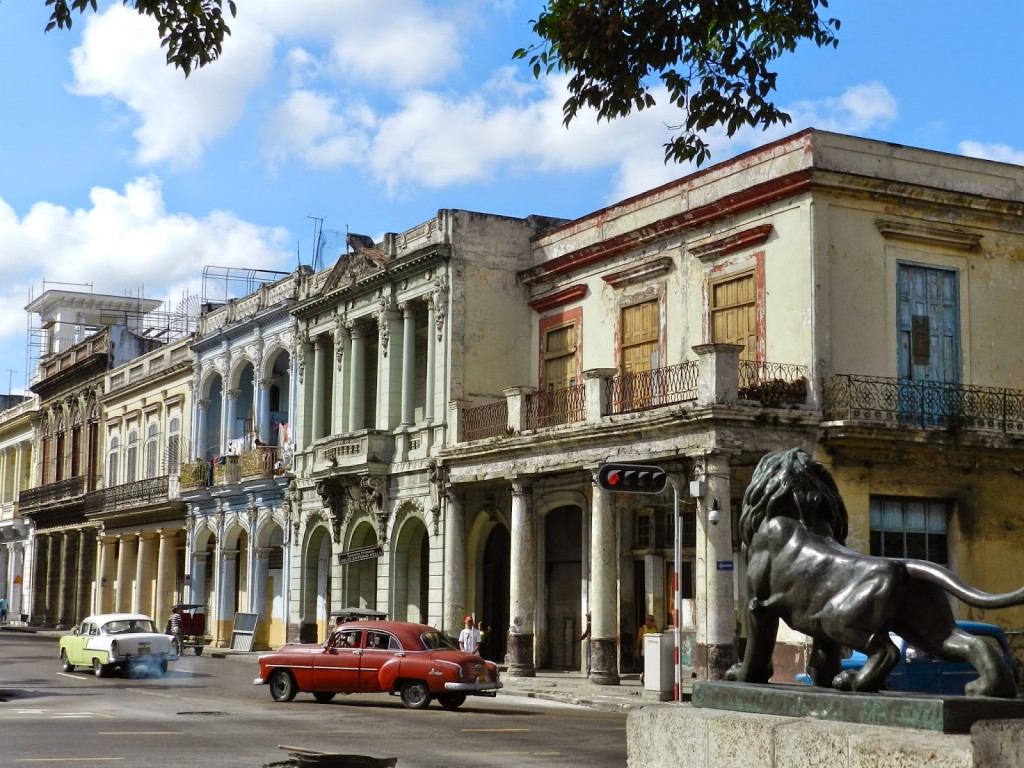
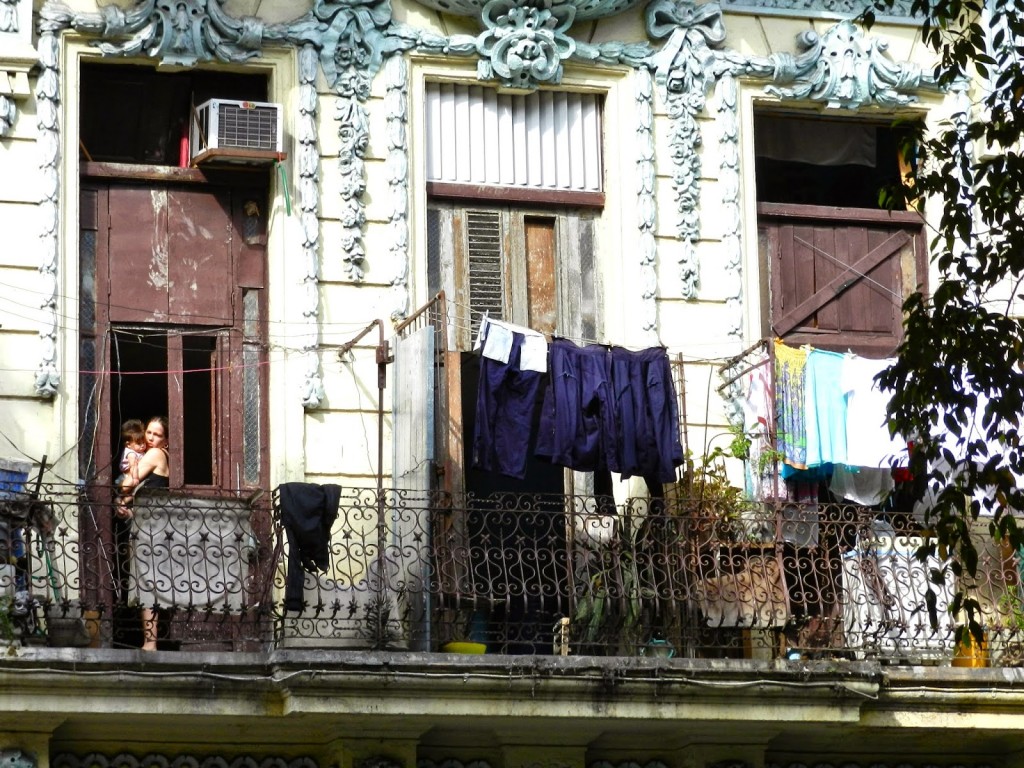
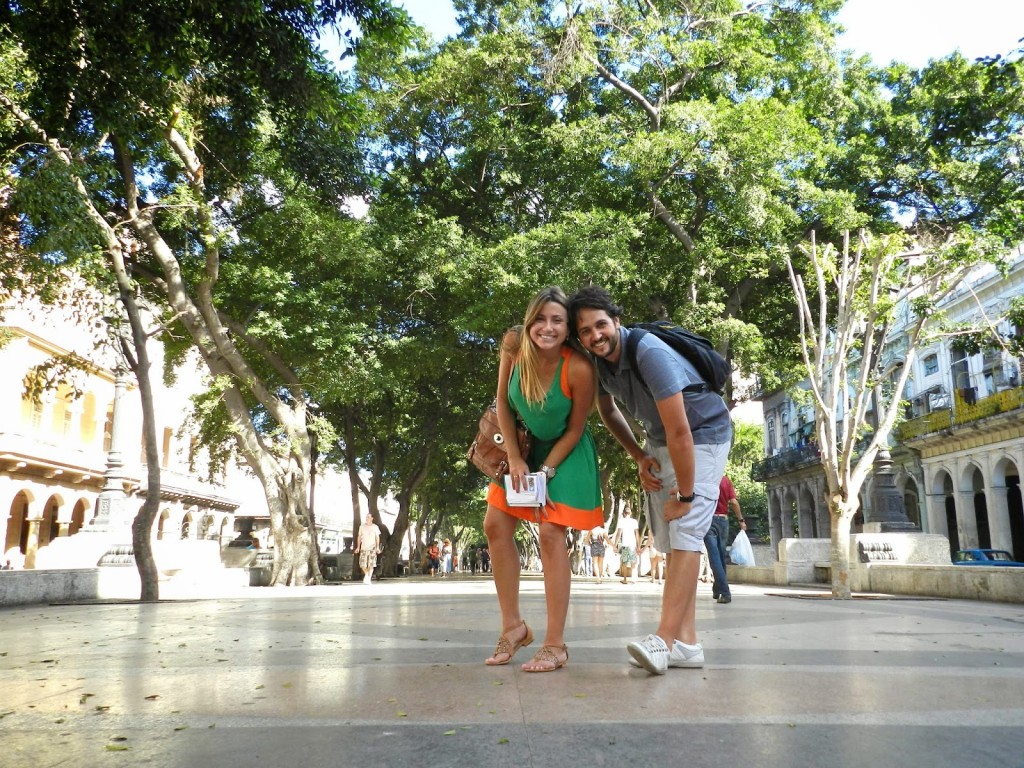
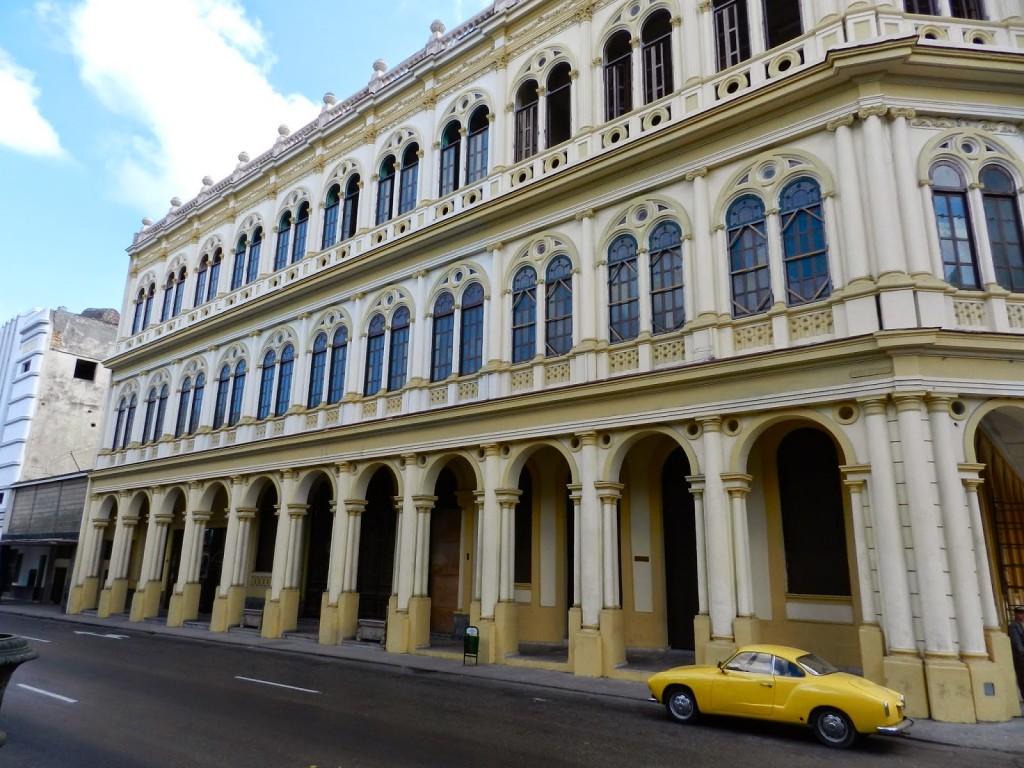
5. Museo de La Revolución: this museum was one of the most interesting tours of the entire trip. The Revolution Museum is located exactly where the Palace of the Dictator Fulgencio Batista was. The building, opened in 1920, is very luxurious. It was decorated by Tiffany New York. It takes a long time to see all the palace… Very interesting! You will leave the museum knowing everything about the fights for independence and about the revolution. Notice the bullet holes in the main stair. The bullets were fired by revolutionary students in 1957, but Batista fled upstairs and he was saved.
The boat that brought Fidel Castro and other revolutionaries from Mexico, the famous Granma, is located behind the museum, in a square.
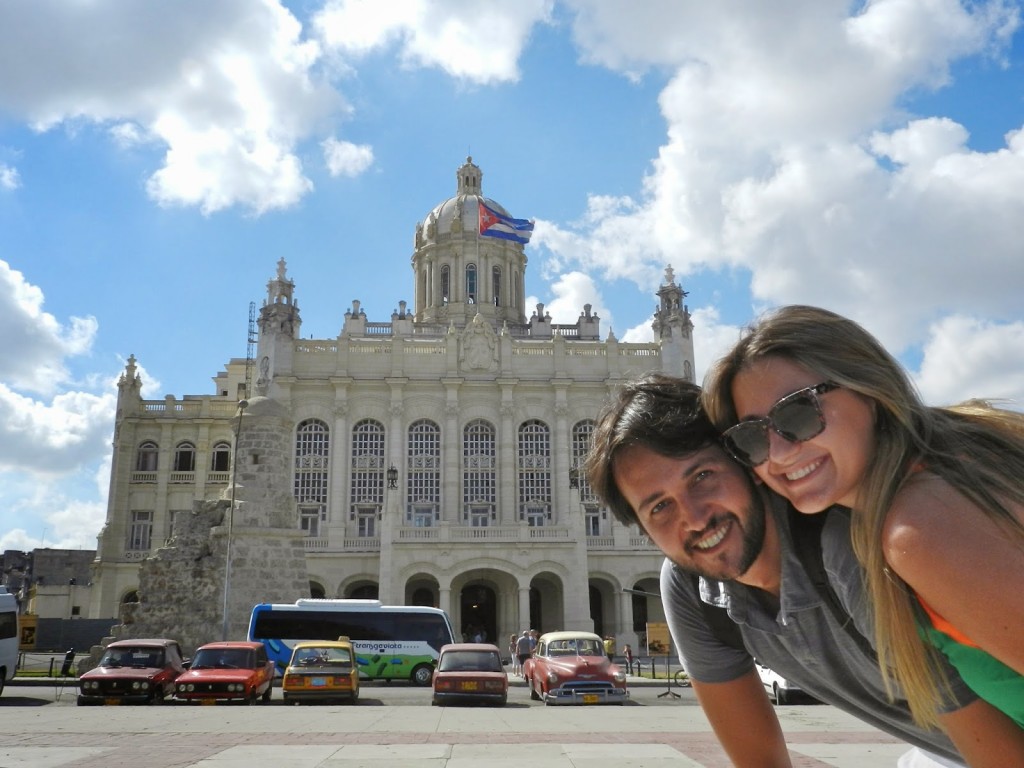
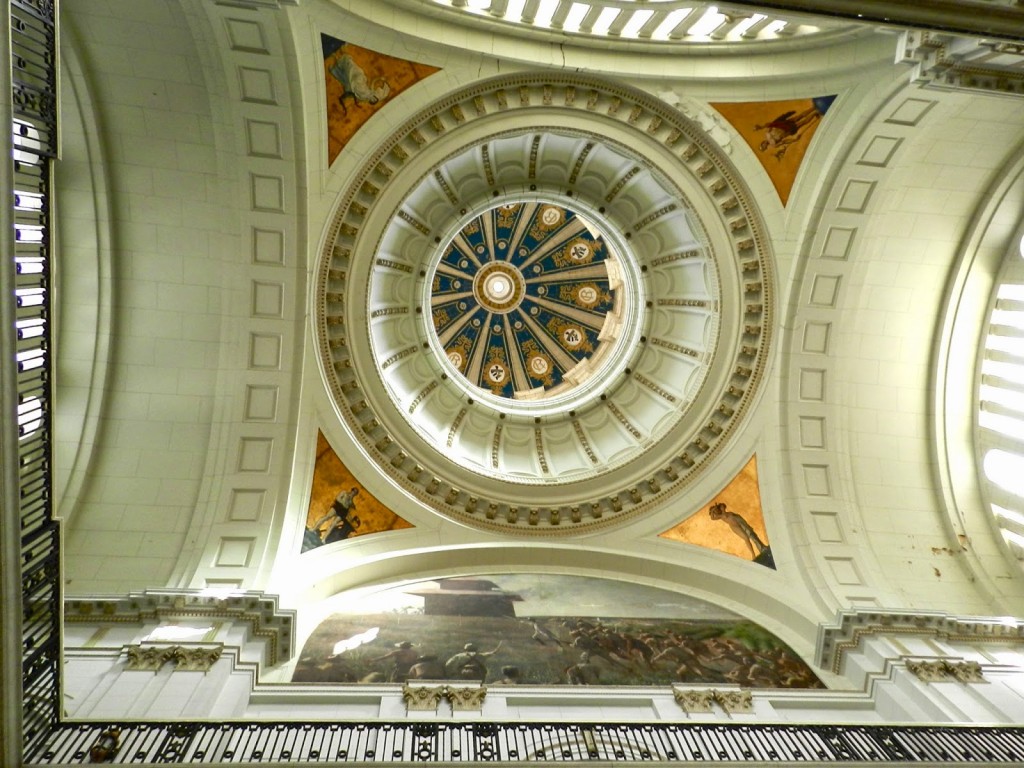
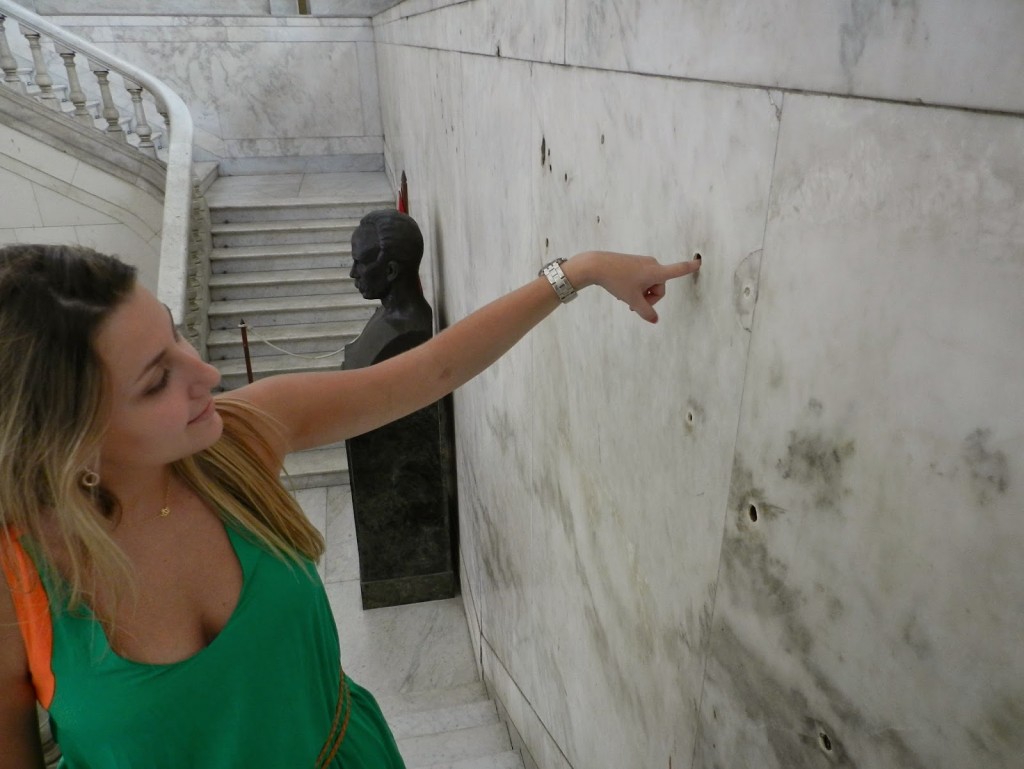
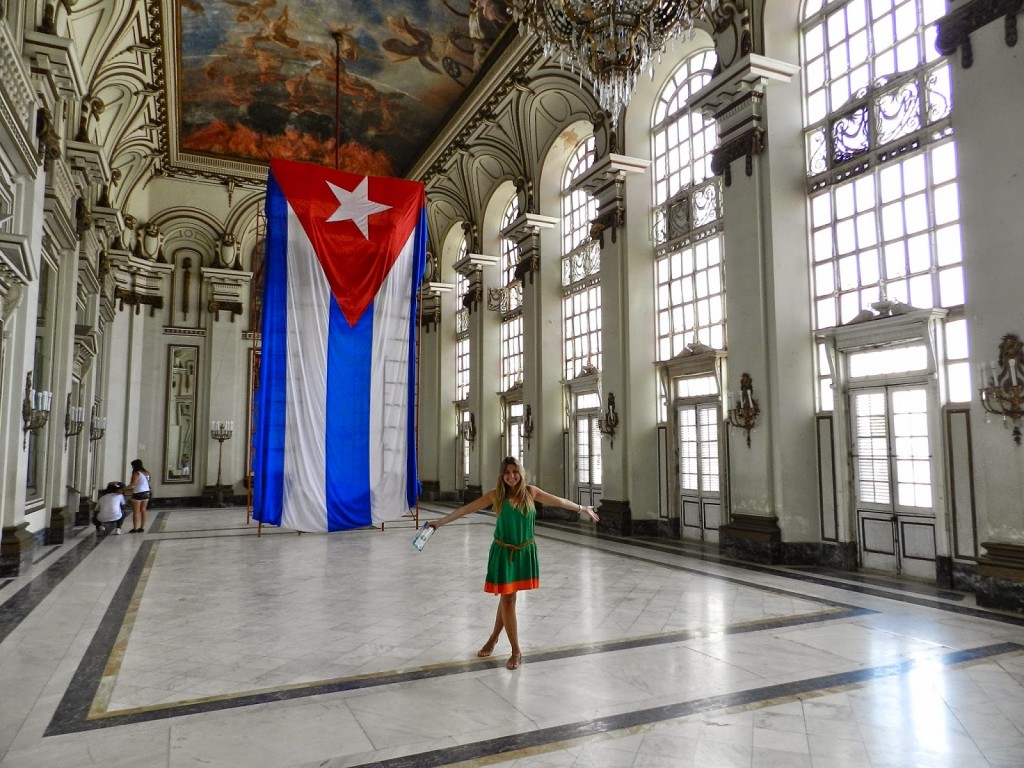
6. Castillo de San Salvador de la Punta: just after the end of the Paseo del Prado, is the Fort San Salvador de la Punta, which used to protect the city, but today the site houses a naval museum. We didn’t get in the fort, but you can see it from outside (from the Paseo del Prado or from the Malecón).
7. Malecón: a 7km seaside boardwalk that passes through several neighborhoods of Havana (from the old part to the modern part). Go around… A very pleasant walk. 🙂 The citizens like to go the for the sunset.
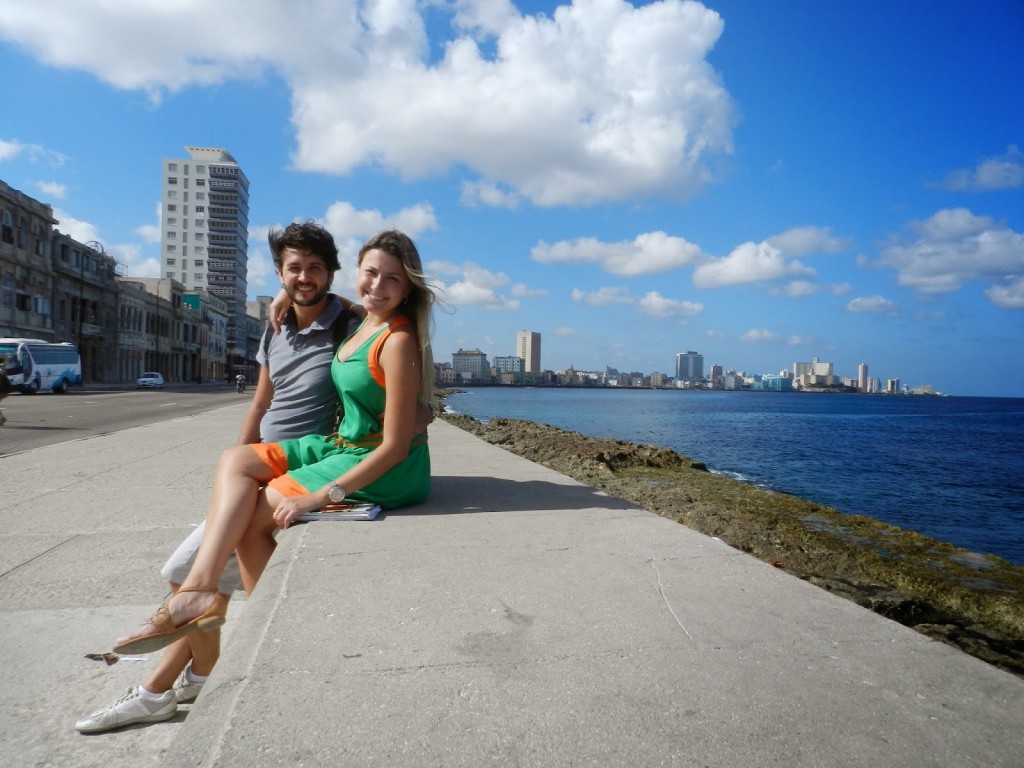
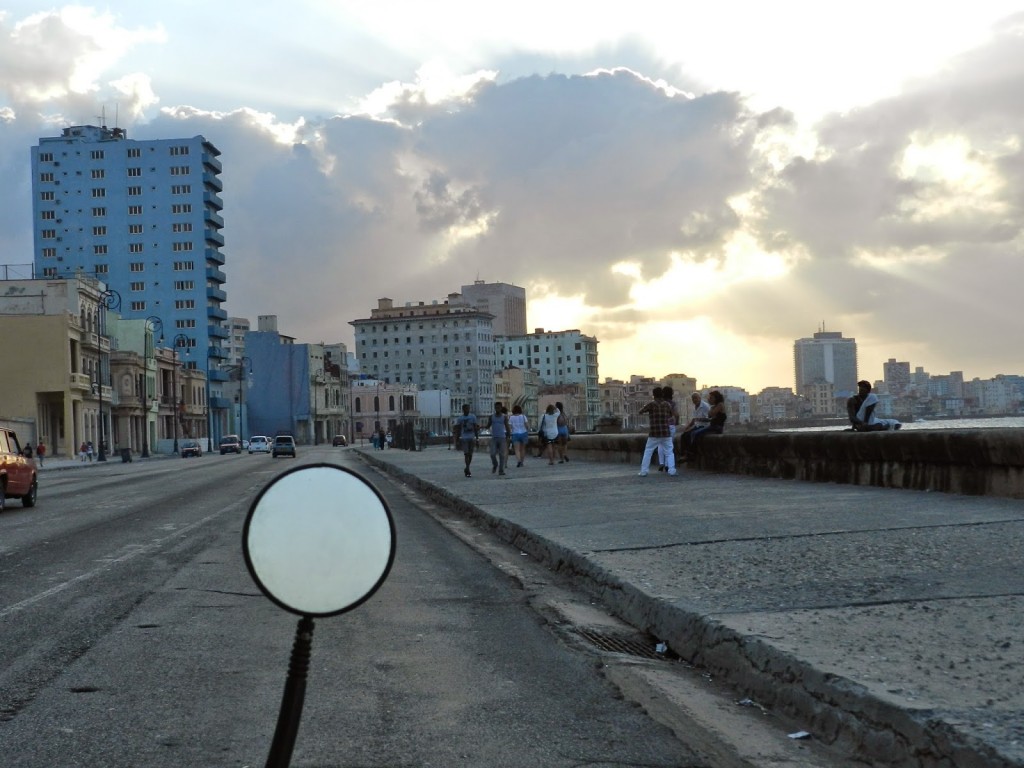
8. After the tour, go back through the Paseo del Prado (Paseo de Martí): if your hotel is one of those that I recommended here, in Old Havana, go back to it through the Paseo del Prado, to see it from another angle, with the Capitol in the background. Even more beautiful at sunset.
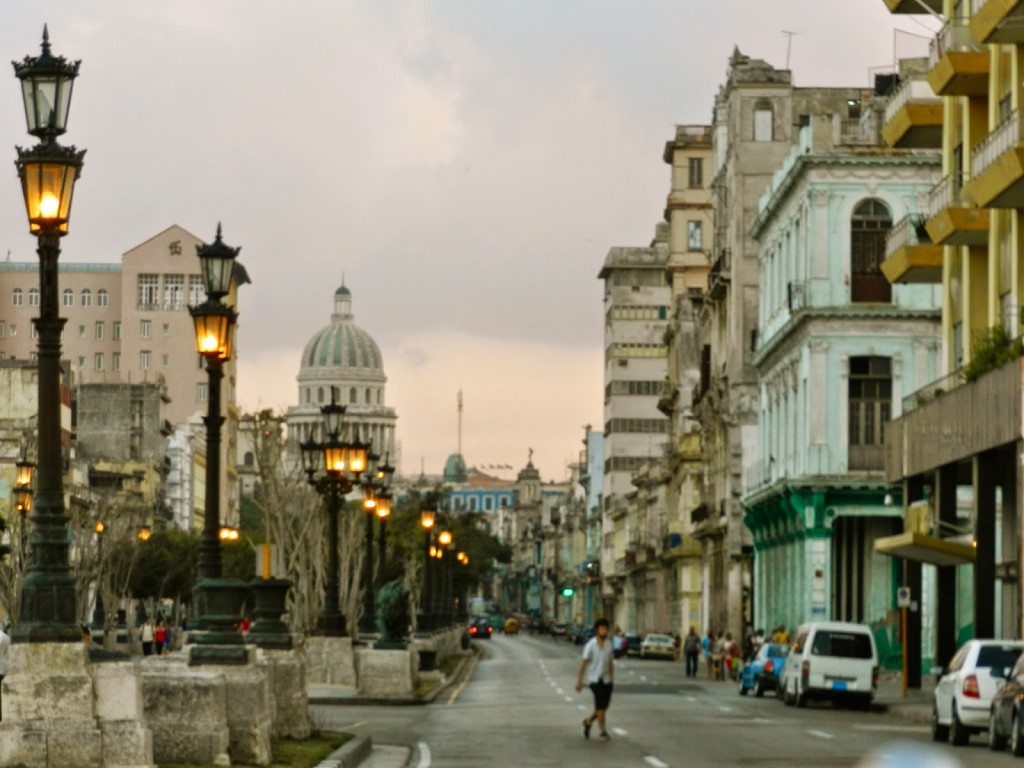
9. Dinner at La Guarida: top restaurant that I’ve recommended before. Must be booked in advanced. We went to La Guarida by bike-taxi, but you can also go walking. It’s only 1 km far.
3rd DAY | Rum Museum & surroundings + Hotel Nacional
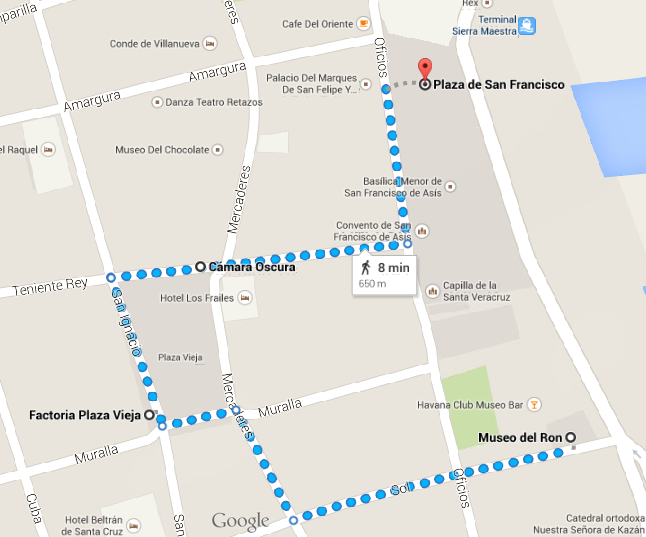
the world-famous cuban rum is part of the country routine. In Havana, the distilleries of Havana Club (most famous cuban rum brand) is open for tourists. You can watch the manufacturing process and also know deeply the history of the rum. At the end of the tour, you can taste some, buy bottles or souvenirs.
Address: Avenida del Puerto, 262, esq. Sol, Habana Vieja.
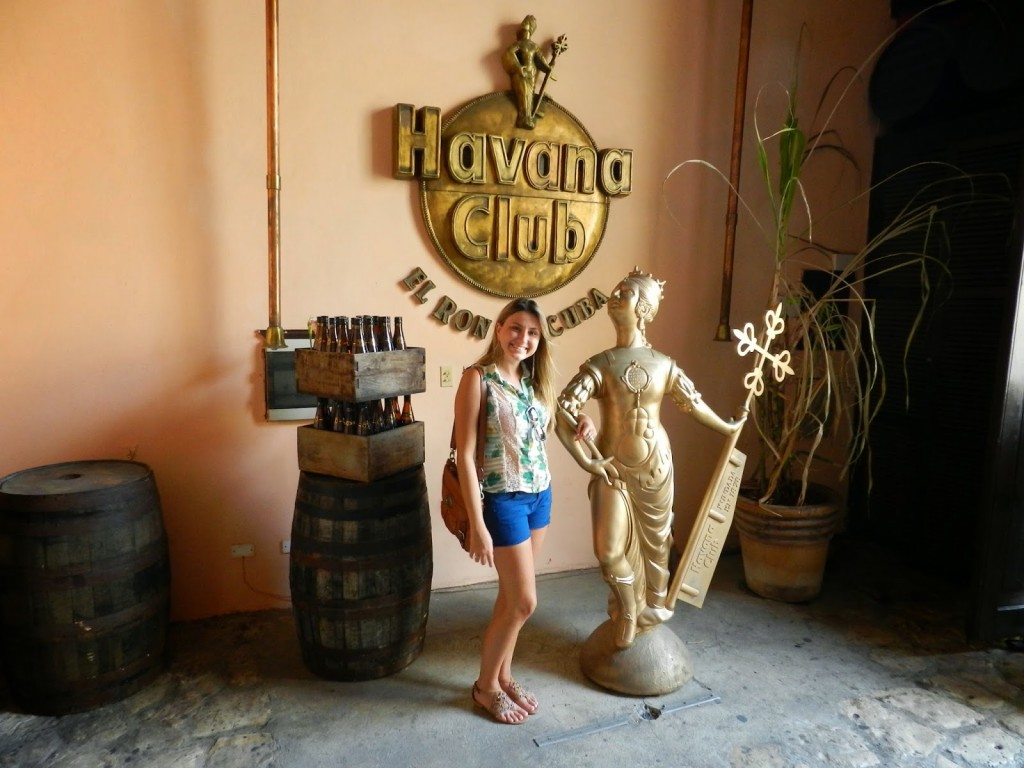
2. Plaza Vieja: the name of this square means “old square”, but there’s nothing OLD about it! It’s very very CUTE. It’s my favorite square there. Its name was “Plaza Nueva” (new square), built in 1559, but when other urban areas were constructed in the 19th center, this place lost its importance and was renamed to Plaza VIEJA (old). It was once a parking lot!! But it was restored and today is a colorful and beautiful jewel in the heart of Old Havana. All buildings surrounding the square are gorgeous – 4 different centuries constructions!
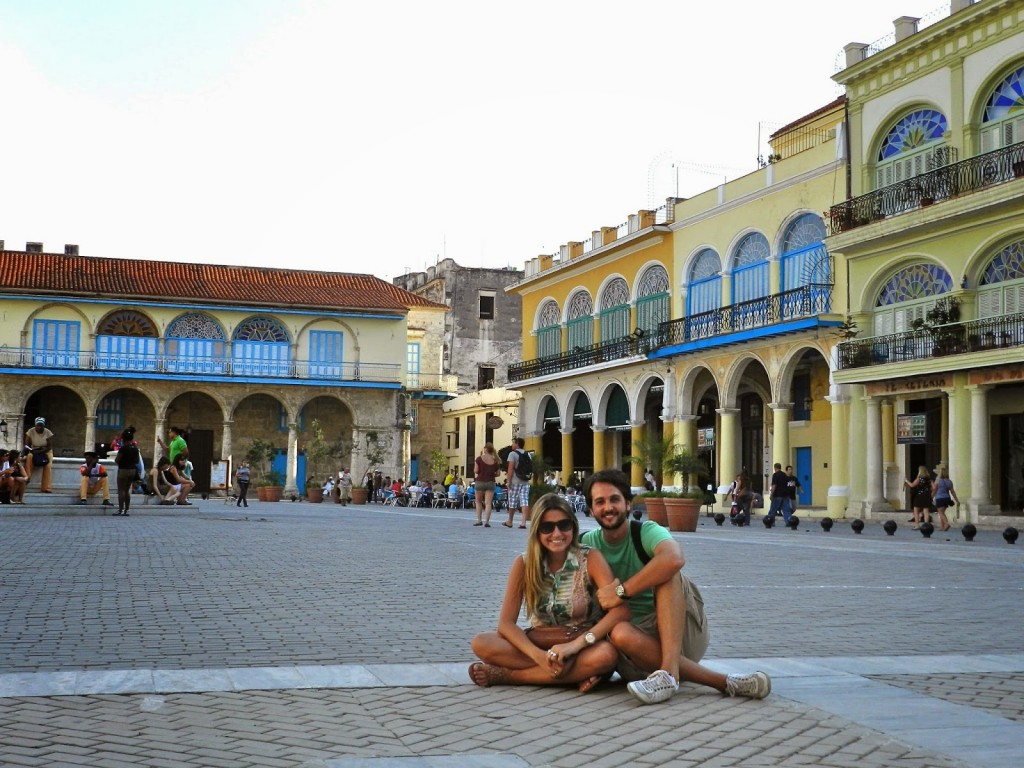
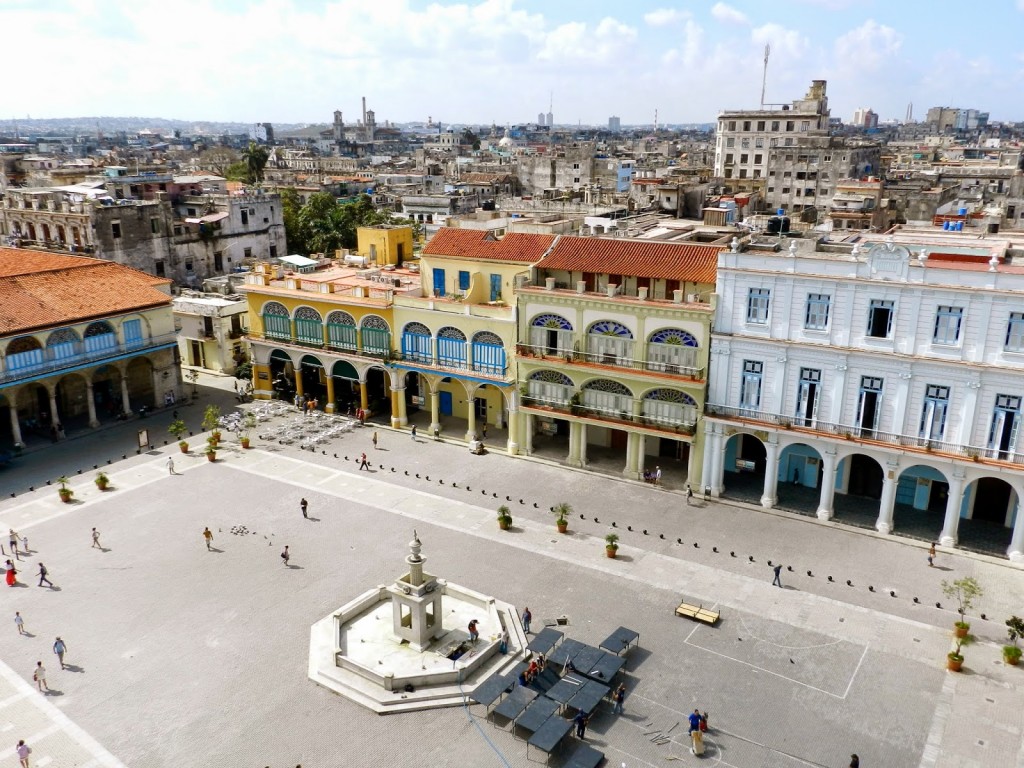
3. The Camera Obscura: very interesting place! On the top floor of a building on the corner of Plaza Vieja (Edifício Gómez Vila) is this Camera Obscura. It was launched in 2001 and it’s a gift of Council of Cadiz, Spain. It’s the only one of its kind in Latin America (and is one of 72 worldwide today).
“Its operation is based on the principles of light reflection through the use of two lenses and a mirror located on a periscope. The image that is captured by the periscope is projected on a concave platform 1.8 m in diameter, located inside a dark room. The ambient light during the projection contributes to obtain sharp images and are therefore best seen on clear, cloudless days.
In its rotation, this great lens is able to capture beautiful and unusual city scenes, which as passive bystanders we are often unaware of—rooftops, domes, towers, balconies, plazas; people walking up and down busy streets, or hanging out the washing; kids playing in parks and gardens; visitors discovering the intimacies of the city; treetops, the sea, the sky; fishermen and lovers, too, at Havana’s emblematic seawall, the Malecón.” – text taken from the website cubaabsolutely.com
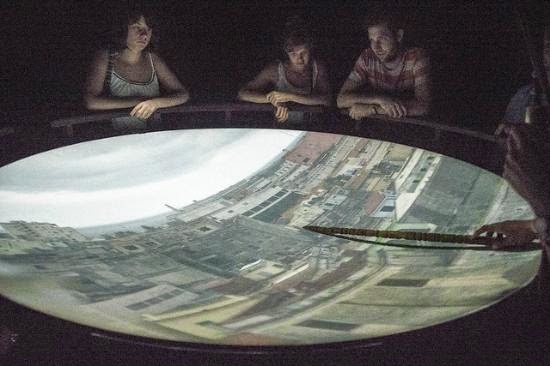
4. Plaza de San Francisco: another beautiful square! There are a lot in Havana, isn’t it? I found this one different from the others. For some minutes, it makes you feel in Europe. There’s something of Madrid mixed with Andalusia… In the middle of the square is the Lions Fountain (Fuente de Los Leones), very similar to the one at Alhambra, Granada. In the square is also the Minor Basilica of San Francisco de Asis, built in 1590 – 1591. If you are already hungry, eat at Cafe Del Oriente, an upscale restaurant that is right on the corner of the square.
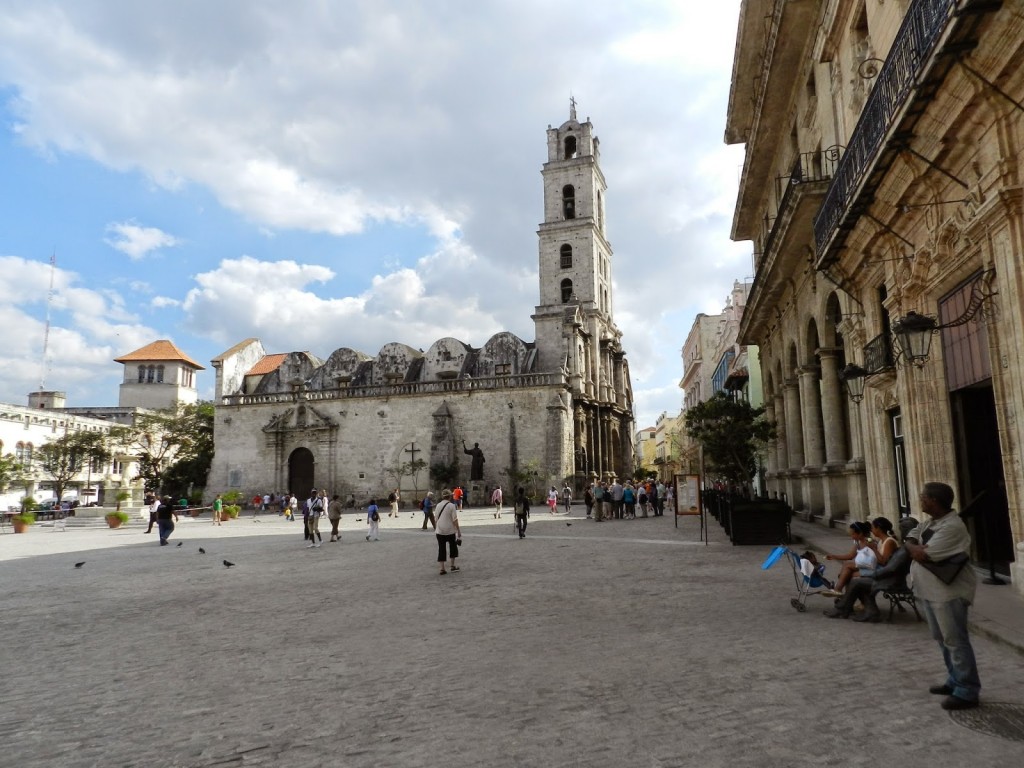
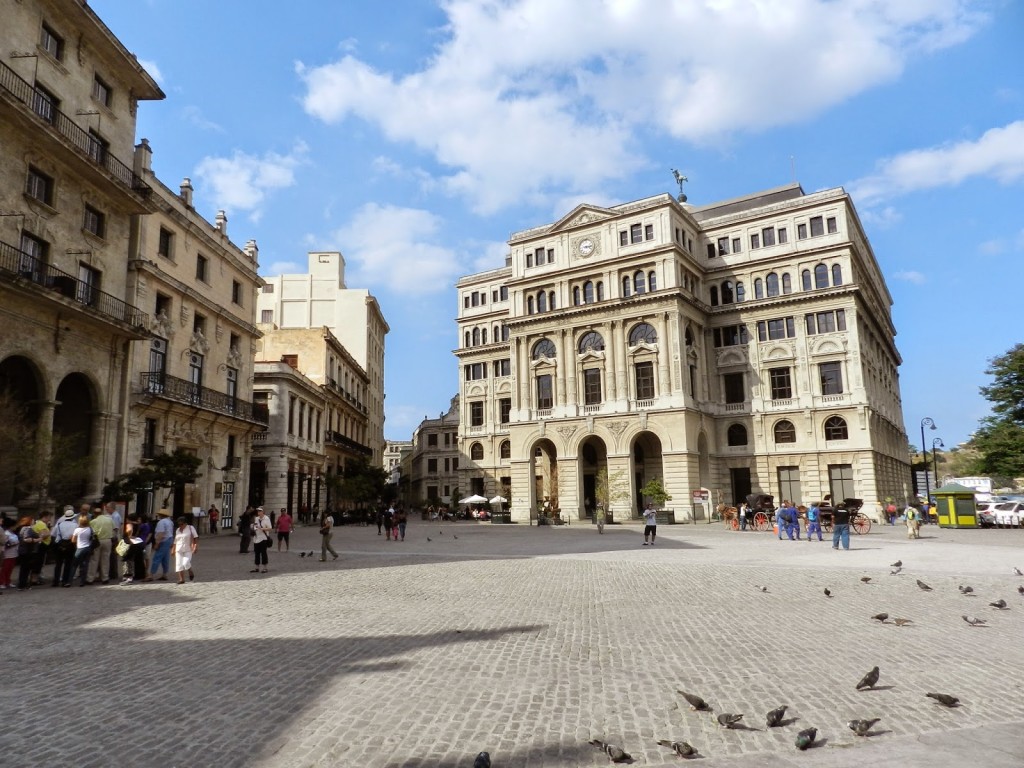
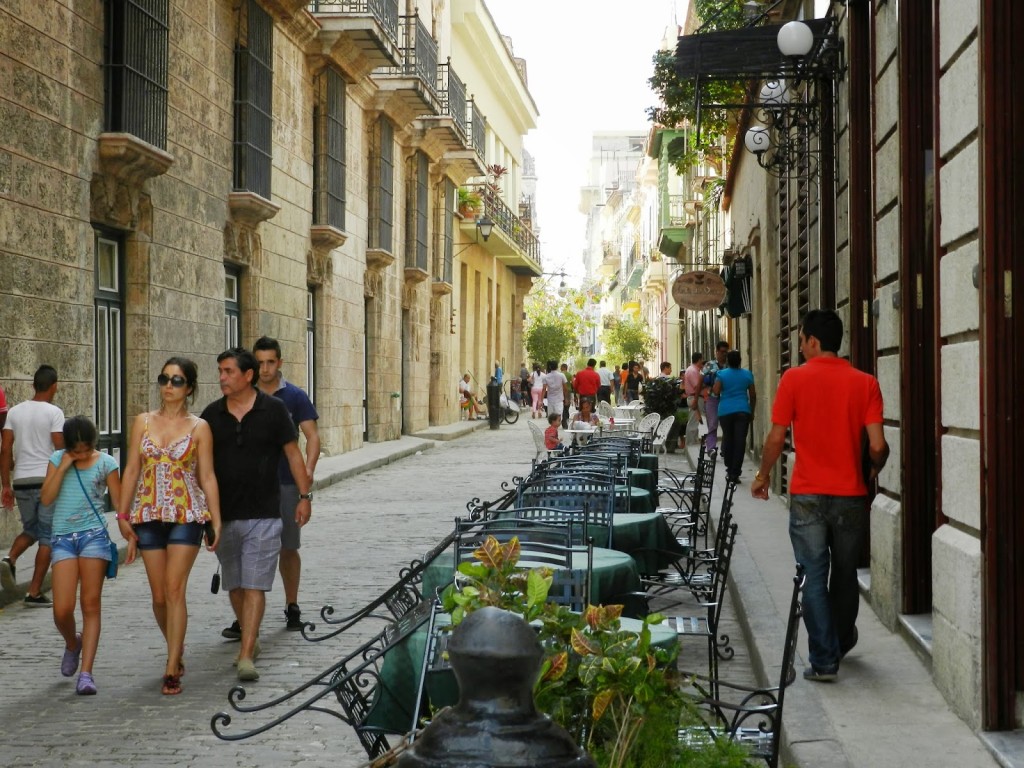
5. Hotel Nacional de Cuba: changing neighborhood… Take a tuc tuc (5km) and go straight to the National Hotel of Cuba (through the Malecón). Check out the hotel’s art deco building, opened in 1930, and which had guests as Winston Churchill and Walt Disney. You can have a beautiful view of Havana from the hotel’s garden. The hotel’s bar is open to the public (non-guests). To go back to Old Havana, take an old historic taxi (ours was pink!!).
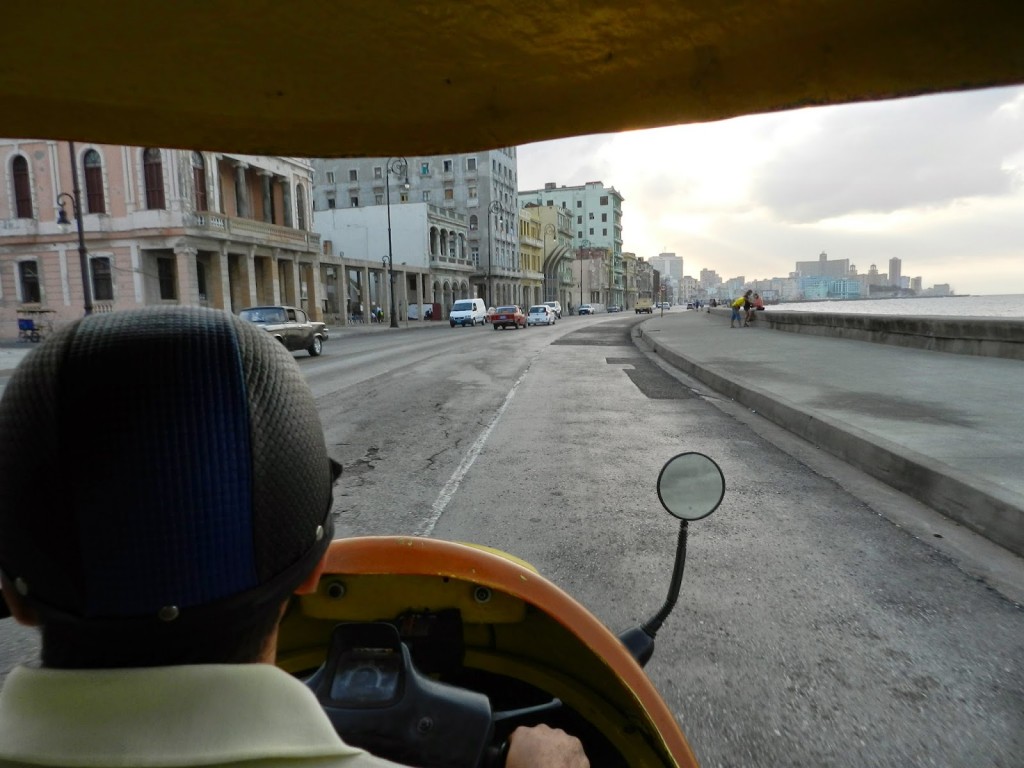
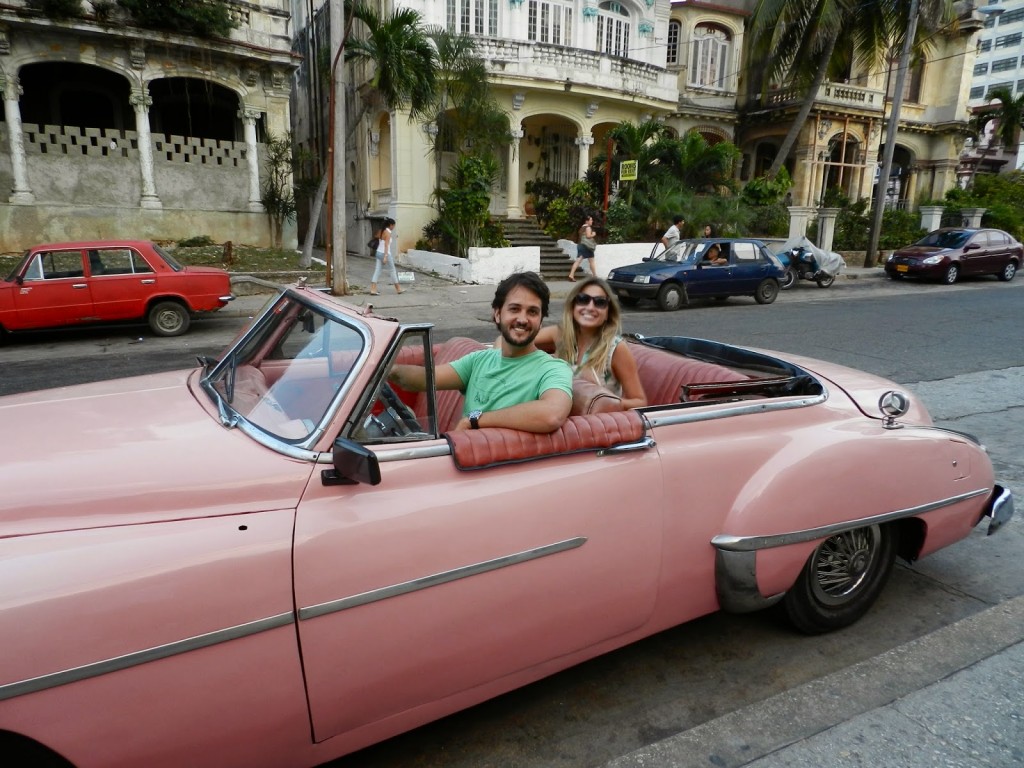
6. Cabaret Tropicana: if you want to go to one of the most famous cabarets in the world, the Tropicana is out of the city center (you need to go by taxi). In addition to watching the show, you can also have dinner there. Book your ticket and your dinner through Tropicana’s website: cabaret-tropicana.com
4th DAY | Cigars, Revolution Square & other monuments
1. Fábrica de Tabacos Partagás: being in on its original place (behind the Capitol at Calle Indústria) or in another address due to the reform of the building (that was what happened to us), now it is time to know all the process to make a cigar. I found it amazing! Suuuch a hard work. A real art. Spare a good time to see all the stages and ask as many questions as you want to the Partagás guide!! Unfortunately we were not able to take pictures or film inside.
2. Plaza de La Revolución: another square! LOL!! This square is not charming at all but worth the visit because of its historical meaning. It was built at the time of Batista (1952), as the Civic Square. But, in 1959, with the victory of Fidel Castro, its name was changed to Revolution Square. It was here that Fidel Castro used to make speeches to the crowd. The square is also famous because of the Che Guevara and Camilo Cienfuegos images fixed on the buildings around. Far from the city center. You must arrive by taxi/tuc-tuc.
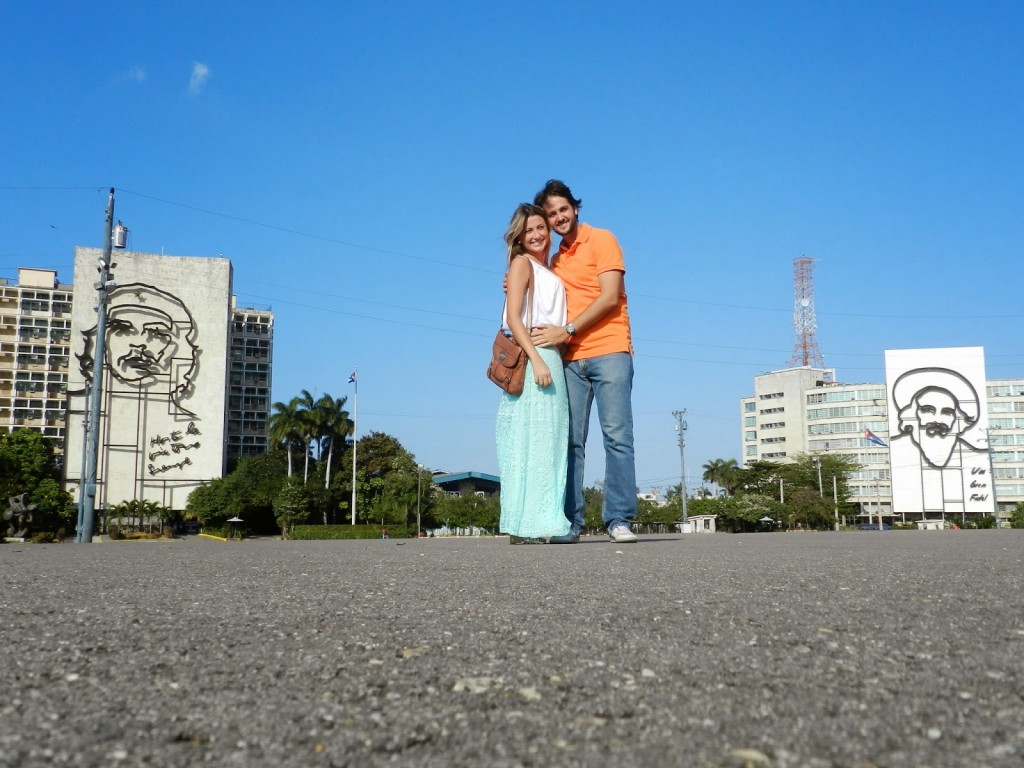
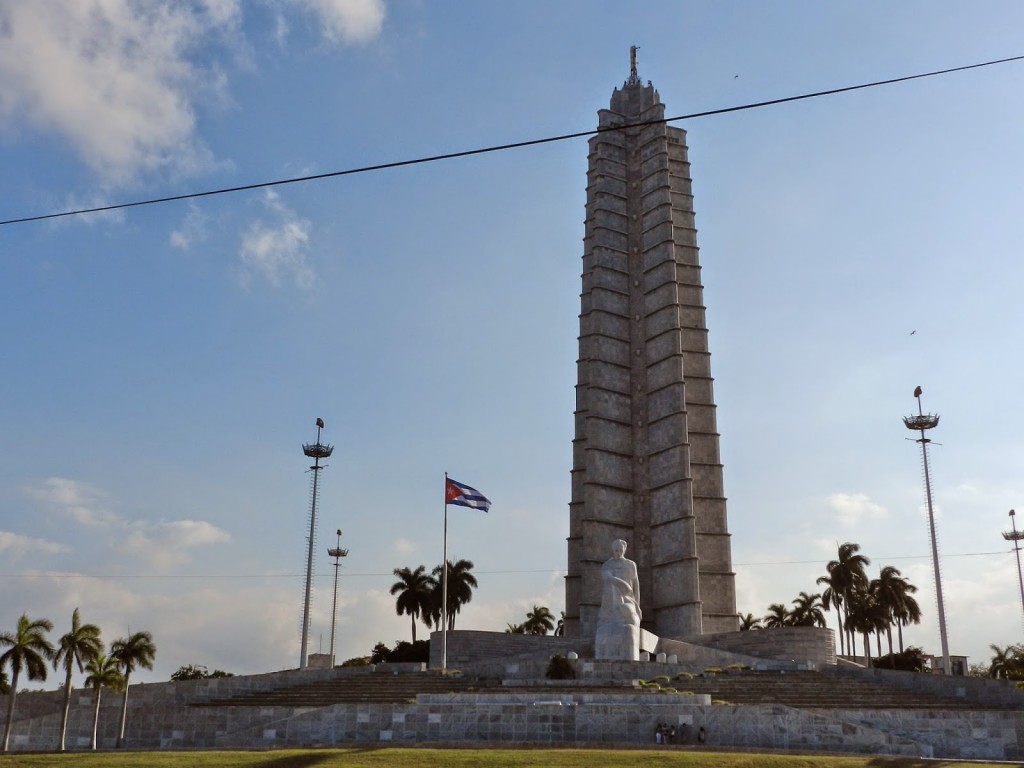
3. Cuban National Ballet at National Theatre: close to the Plaza de La Revolución (just across the street) is the National Theatre of Cuba. If you like ballet, I recommend going to see a performance, directed by the famous Cuban ballerina Alicia Alonso.
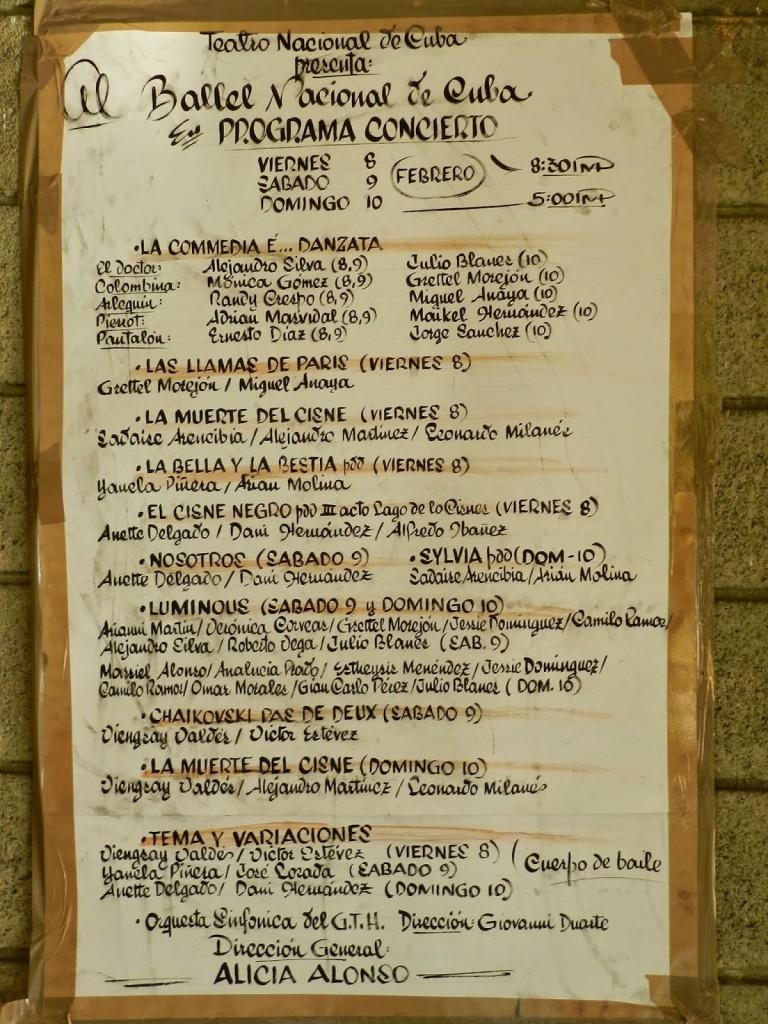
4. San Carlos de La Cabaña & Cañonazo: away from the center of Havana is the Castillo del Morro and La Cabaña Fortress. It’s a huge construction to protect the city, built by more than 4.000 workers and has costed 14 million pesos. Every night at 9PM happens the cannon shot ceremony, that consists of soldiers of the Revolutionary Armed Forces, with historical uniforms, shooting canons, exactly as it was in the past, to warn citizens that the city gates were closed.
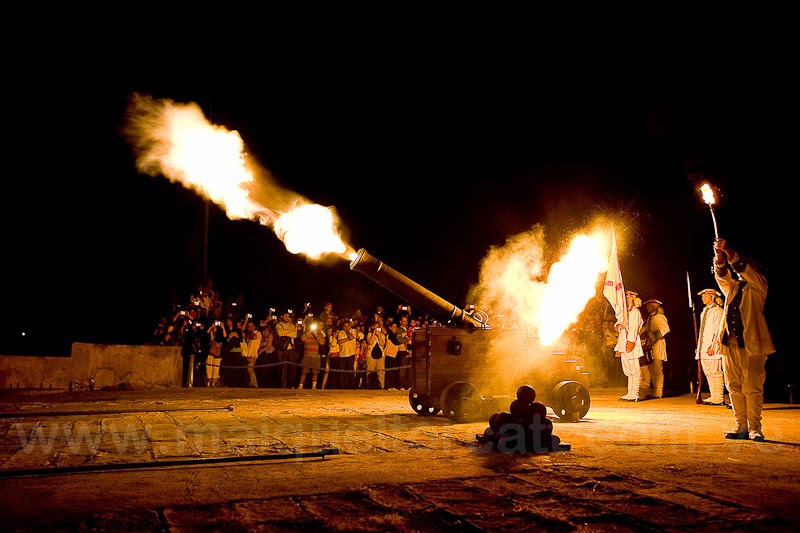
Wow, Havana! What a beautiful city!! AMAZING!!! If you ever wanted to go to Cuba, hope that this post makes you plan your next vacation there!
[BEACHES]
One of the coolest things of traveling to Havana is the possibility to unite culture & history with beautiful beaches. After Havana, I recommend going to two very different types of paradise:
– VARADERO
To go to Varadero you need to rent a car and drive there, only 144km far from the capital, with good road. But Varadero isn’t a “Real Cuban Experience”. It’s for foreigns… Very touristic, but not less beautiful. The water is very very turquoise blue, but the experience is very similar to travel anywhere else in the Caribbean.
Resorts suggestions: Meliá Varadero and Barceló Solymar Arenas Blancas.
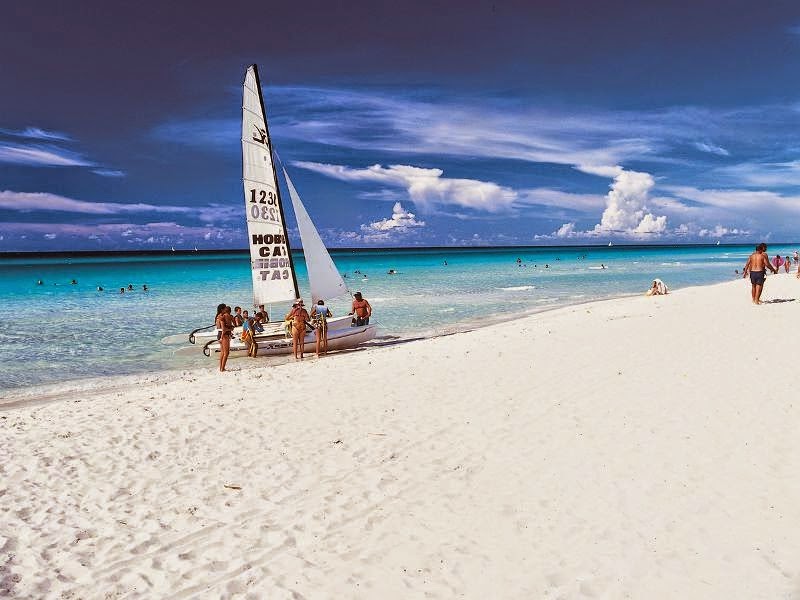
– CAYO LARGO
Much more rustic than Varadero. This small island is part of the province “Isla de La Juventud”. Cayo Largo is perfect for those who like white sand beaches and turquoise water and also for those who like to DIVE. It’s further than Varadero, and as it’s an island, you have to take a plane to arrive there. Fly Aerogaviota ou Cubana de Aviación.
Hotels suggestions: Sol Pelícano, Sol Cayo Largo e Villa Lindamar.
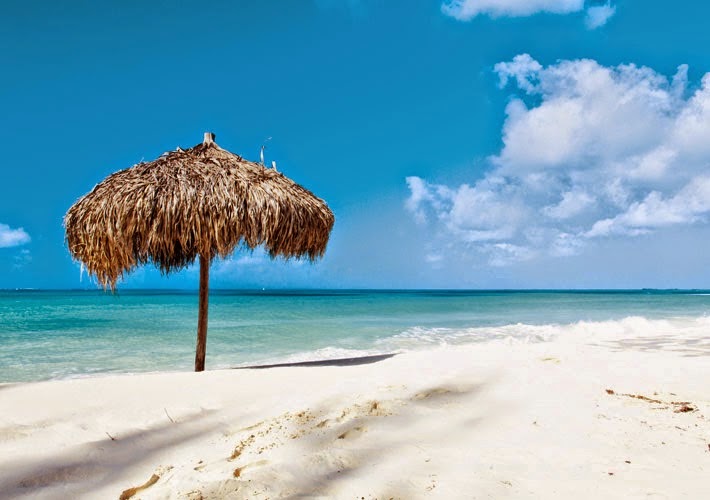
So… Let’s go to CUBA?!? 🙂

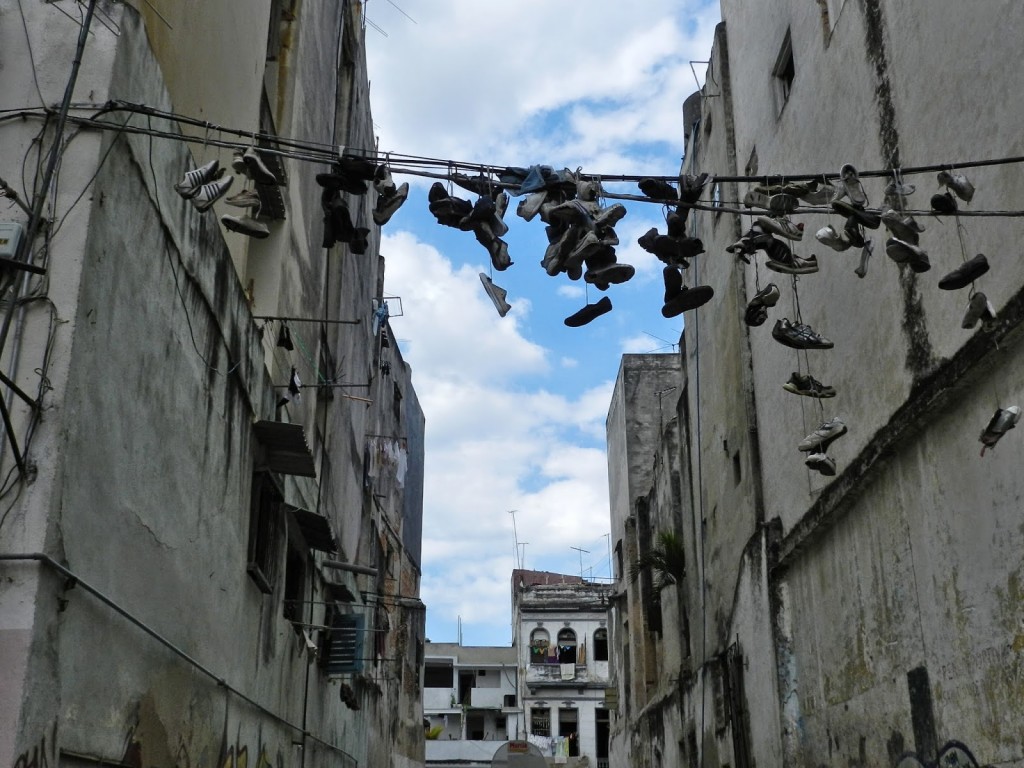
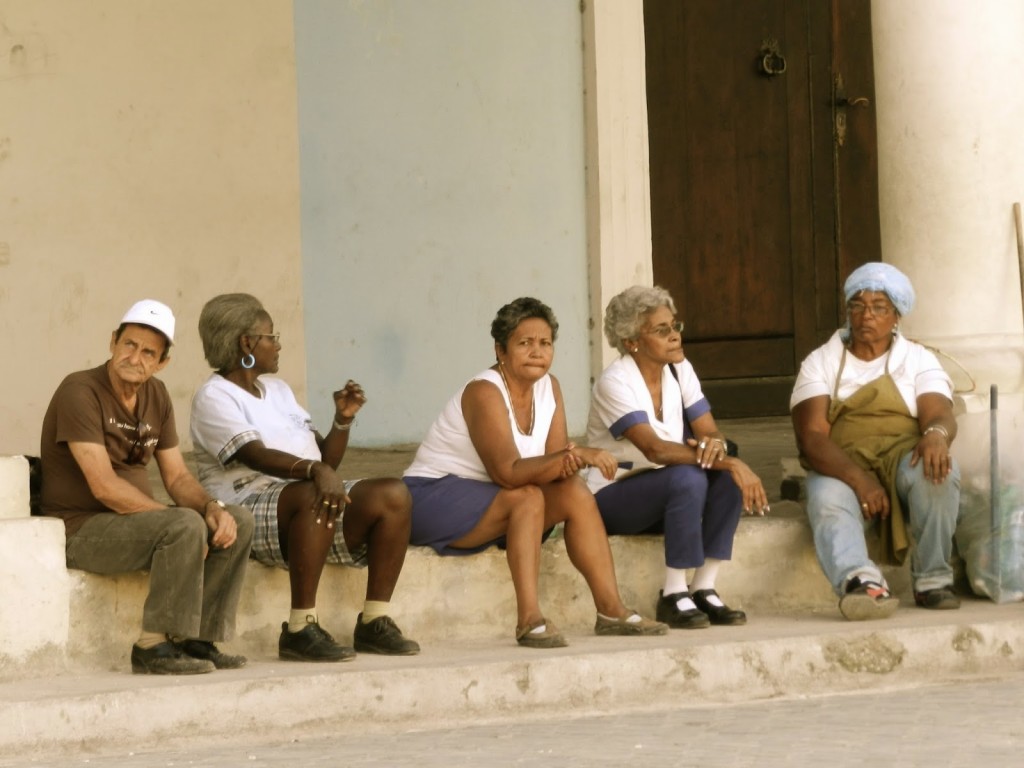
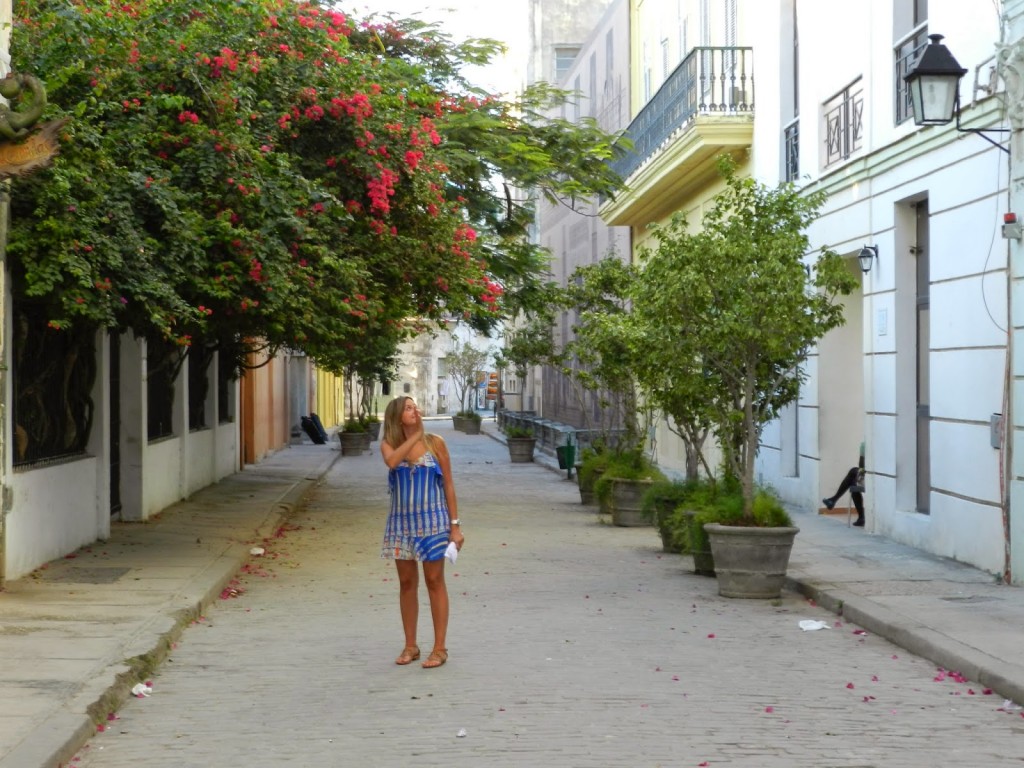
Thanks, Lala
↑ Back to top









